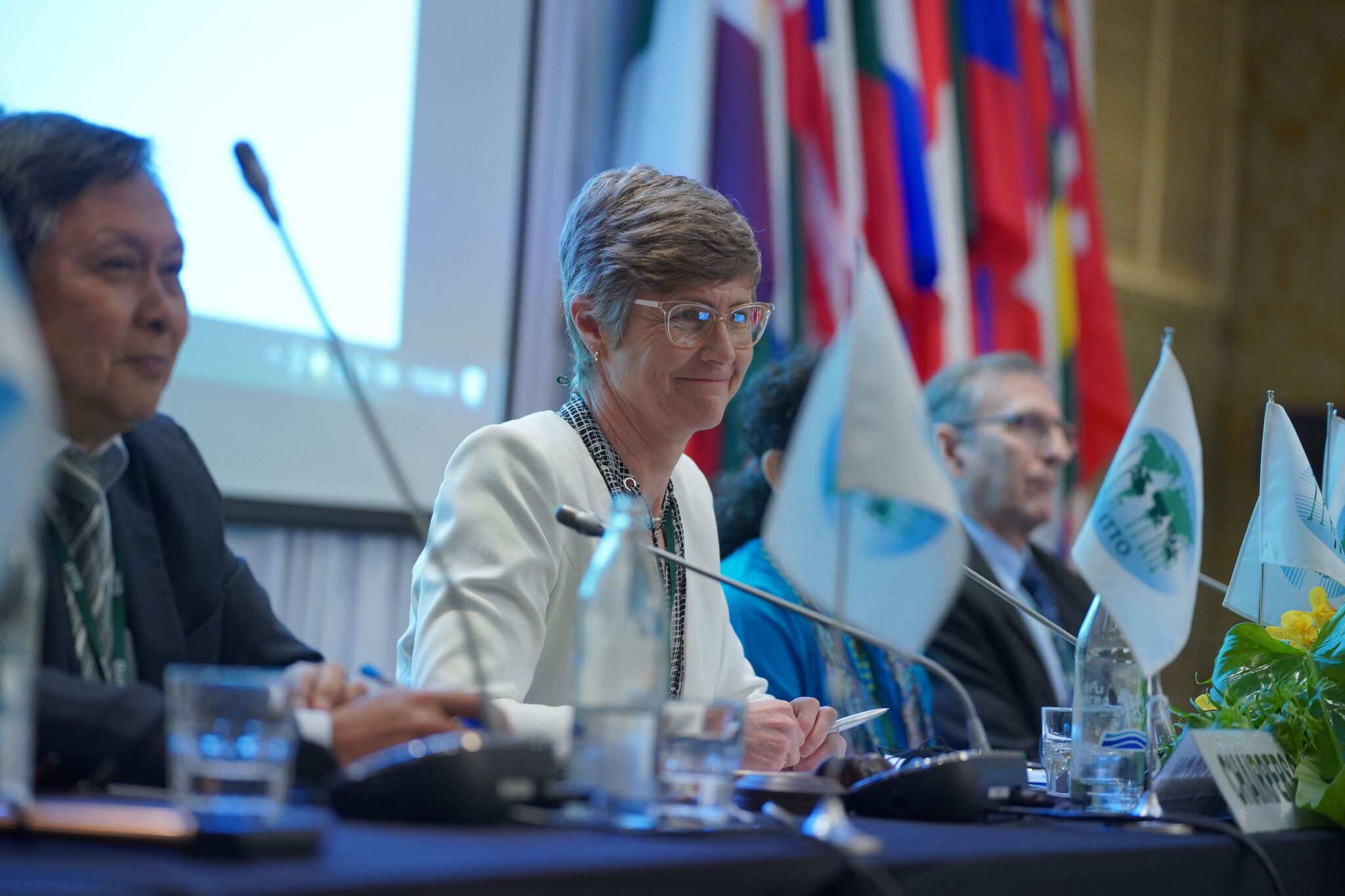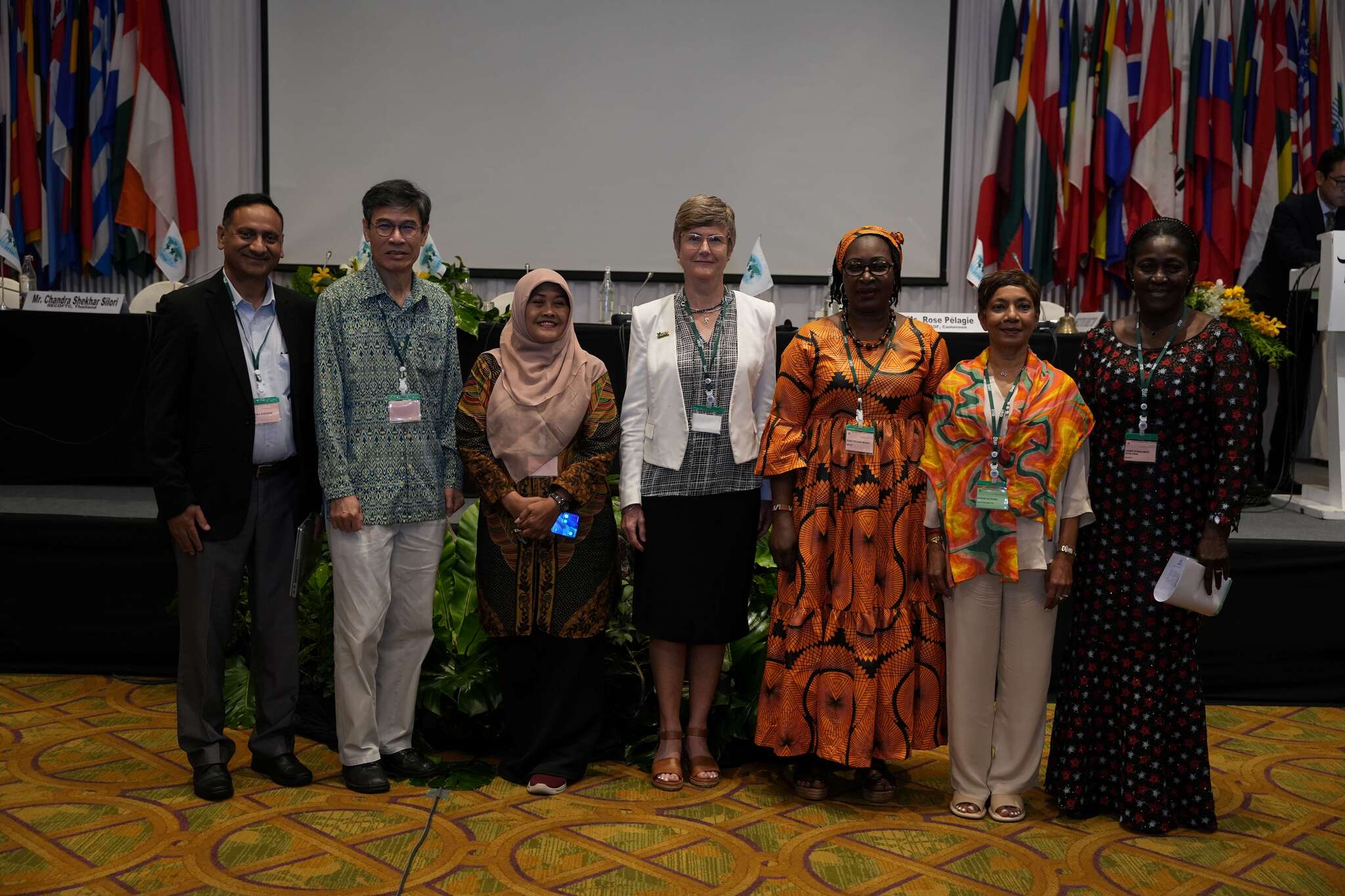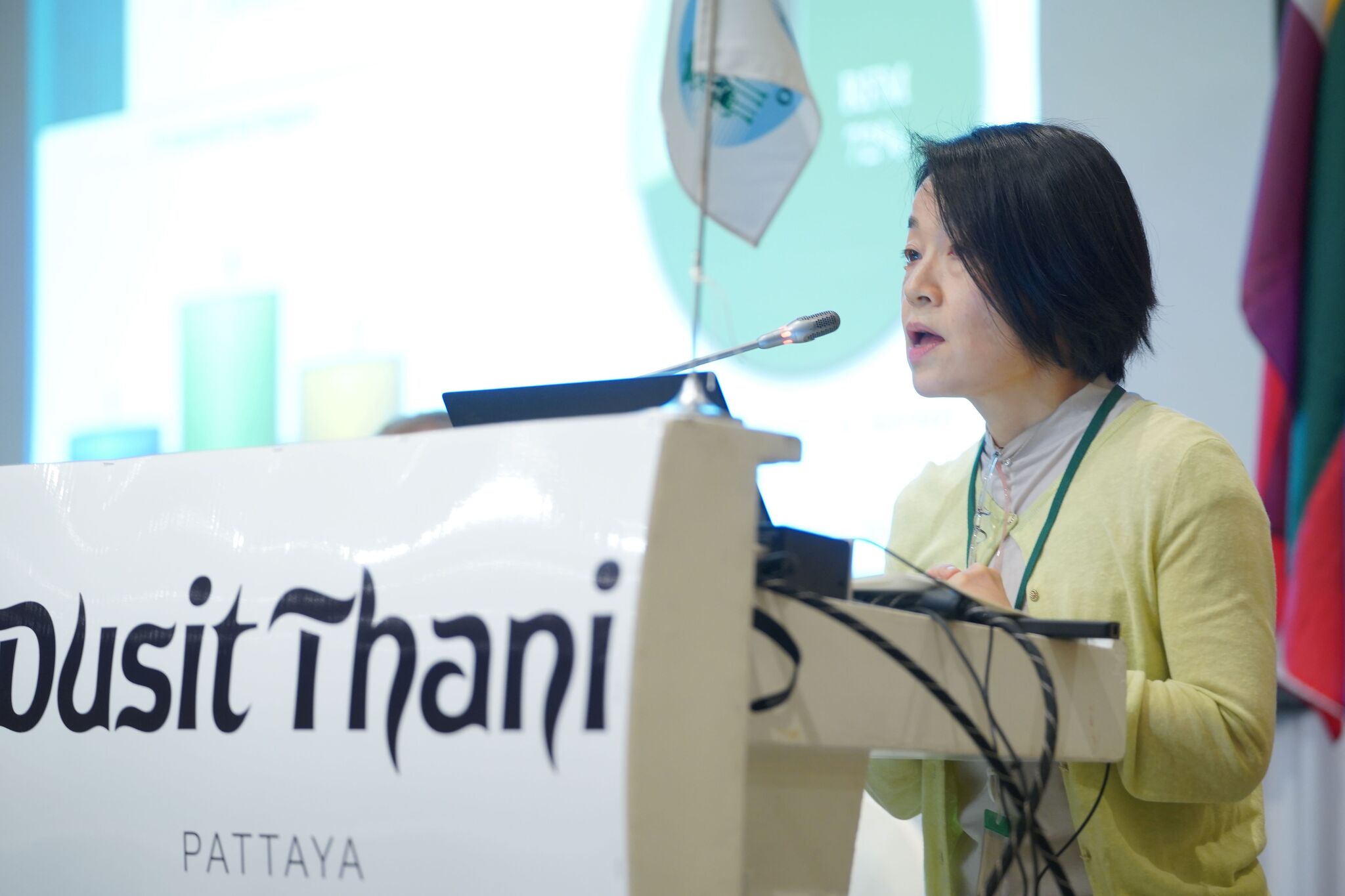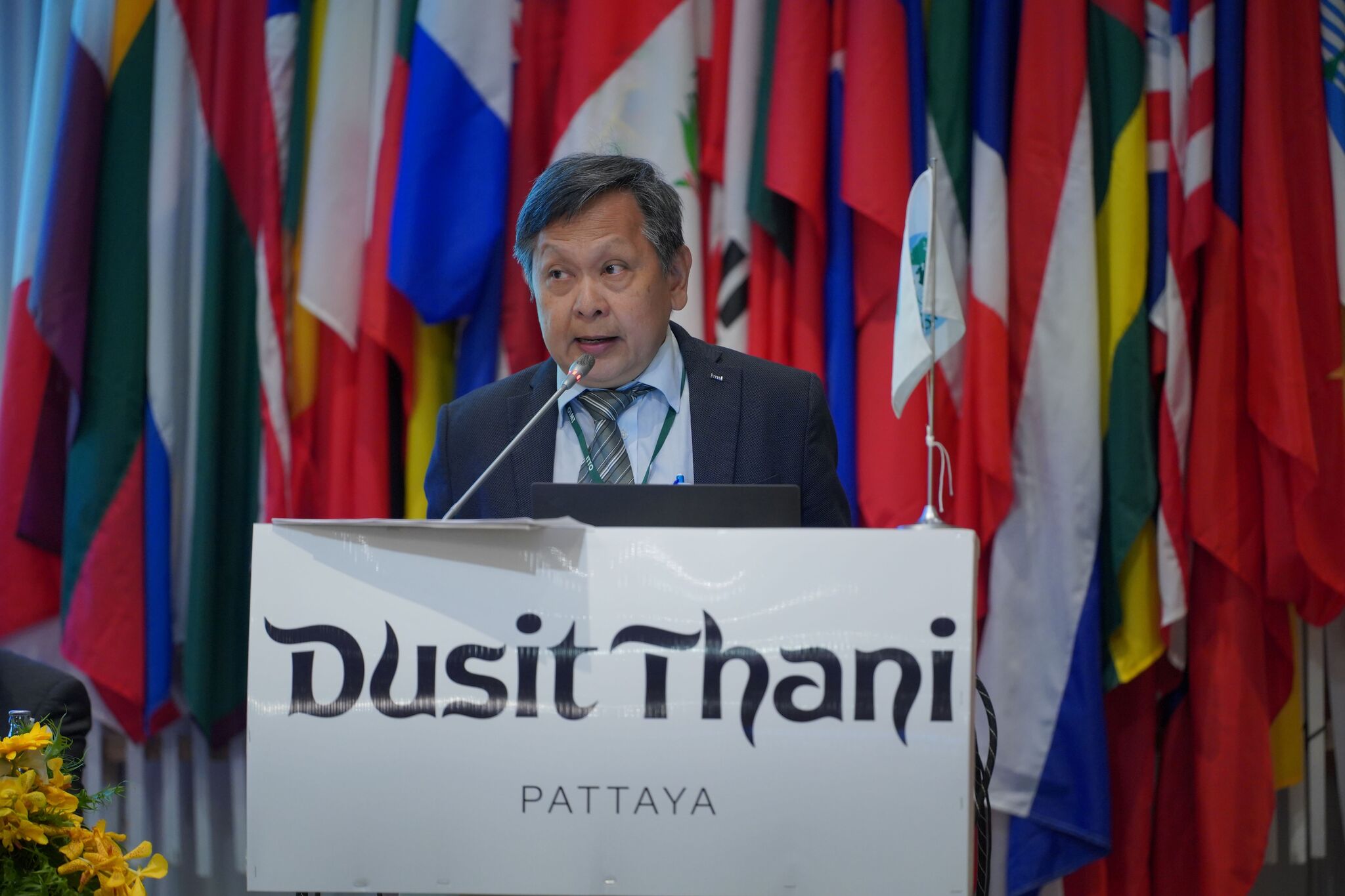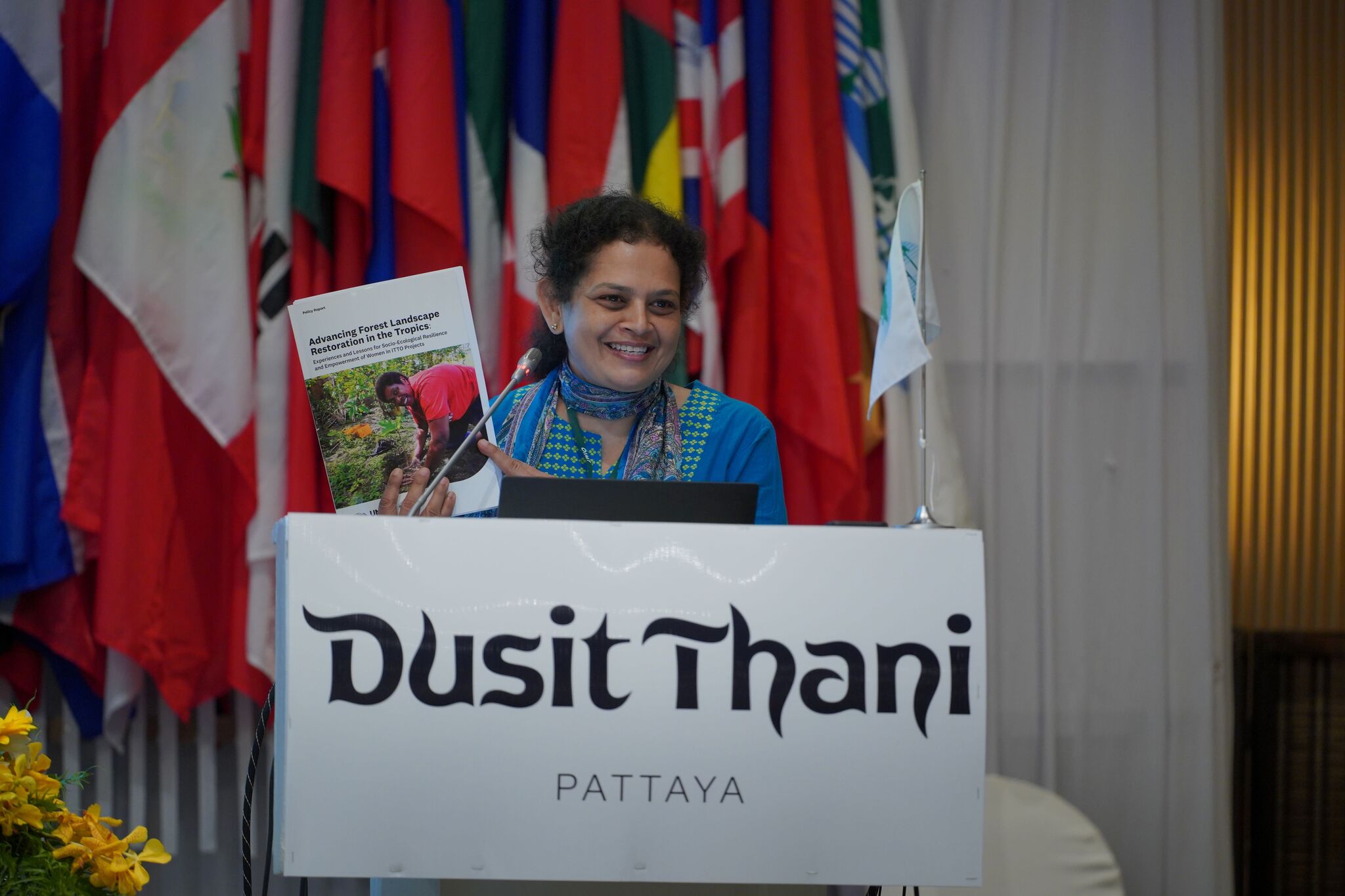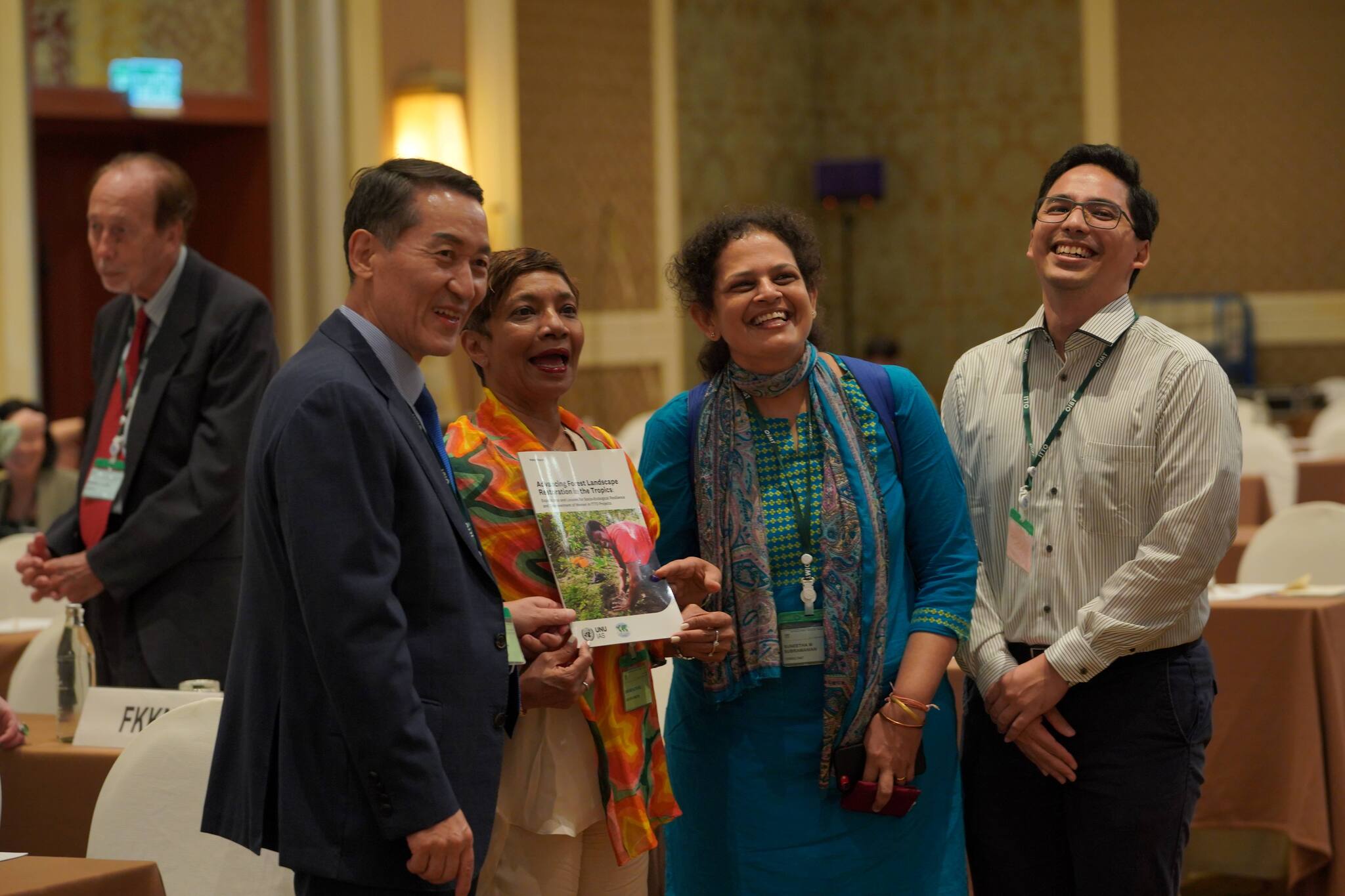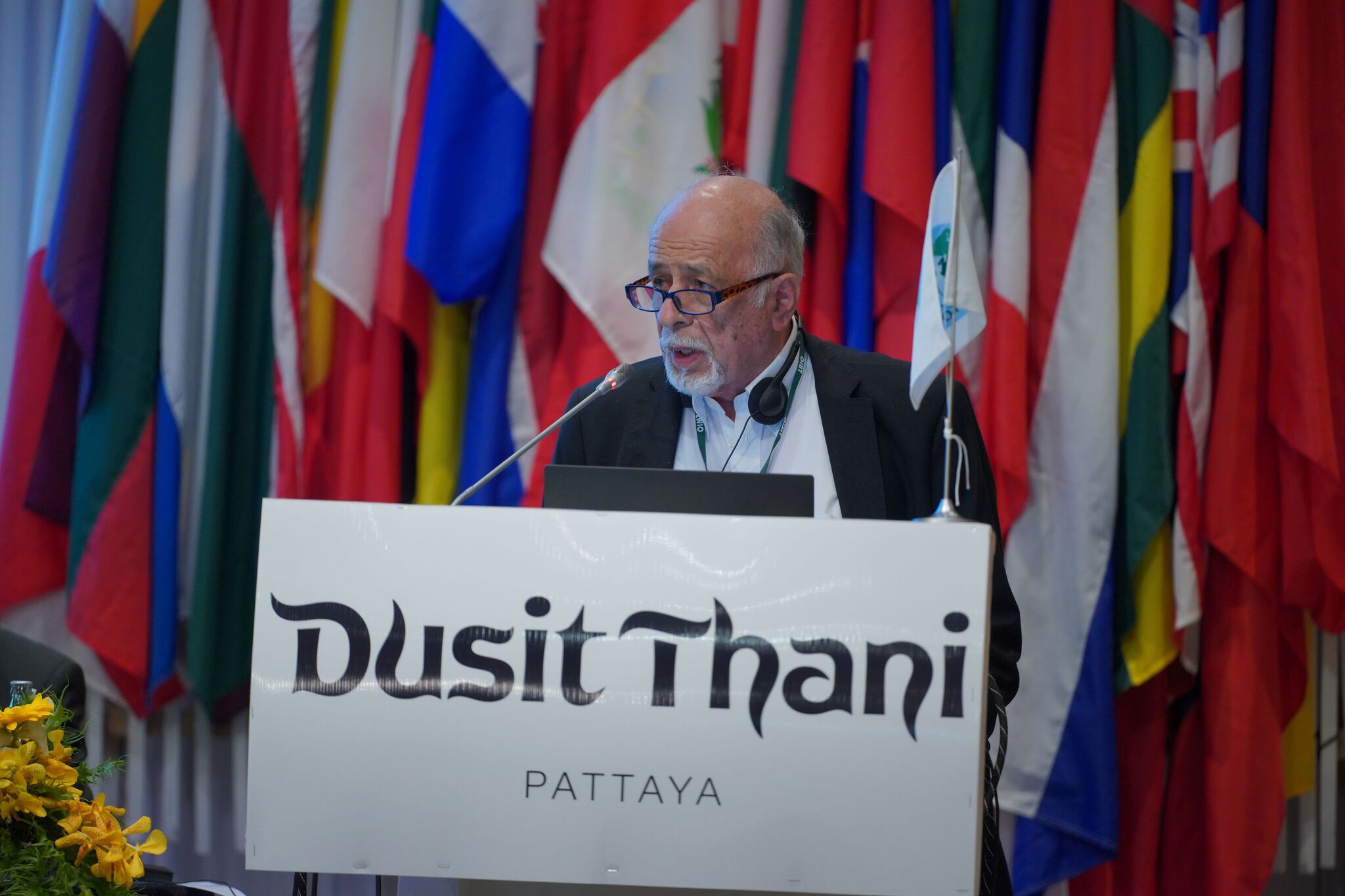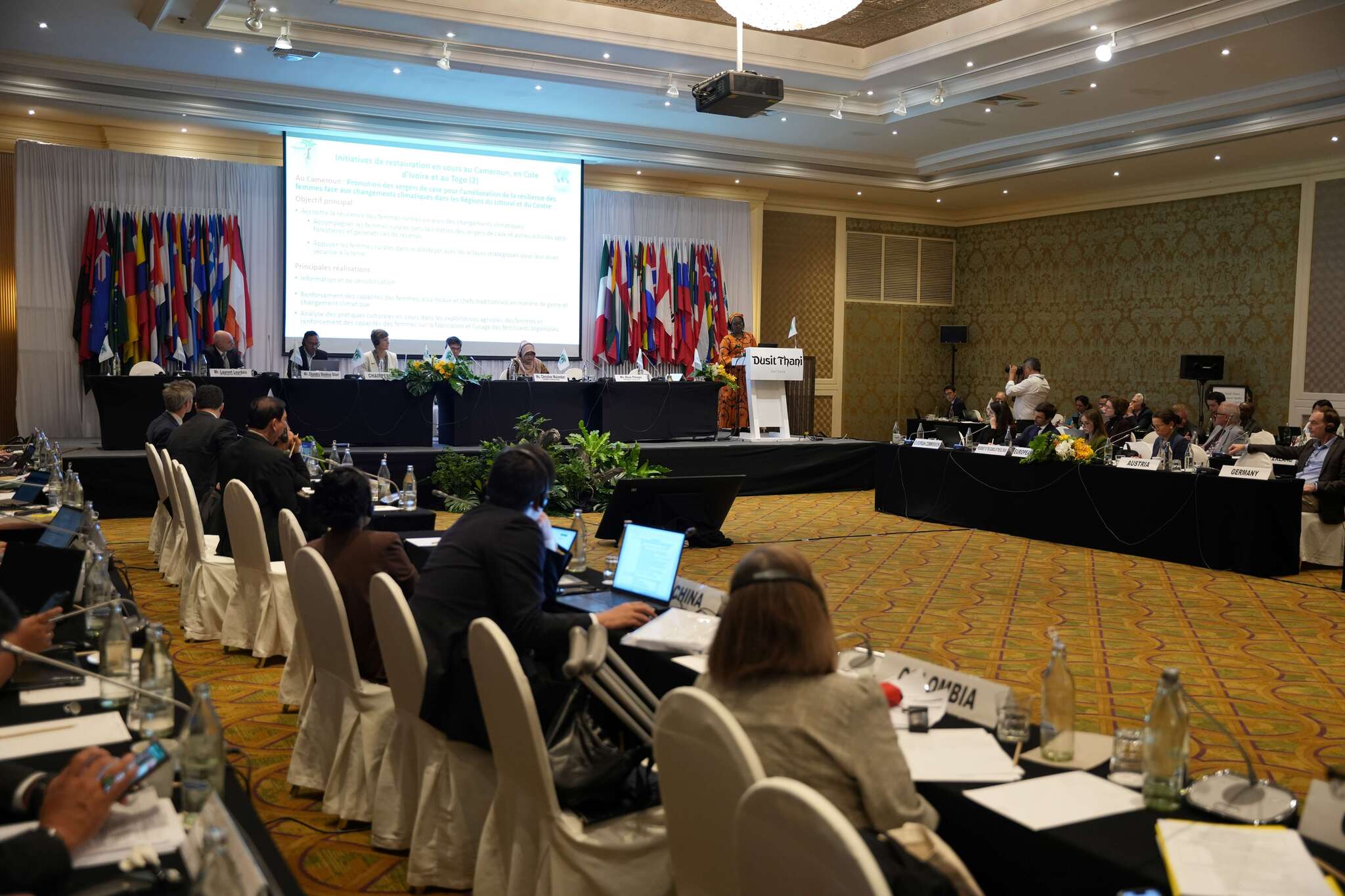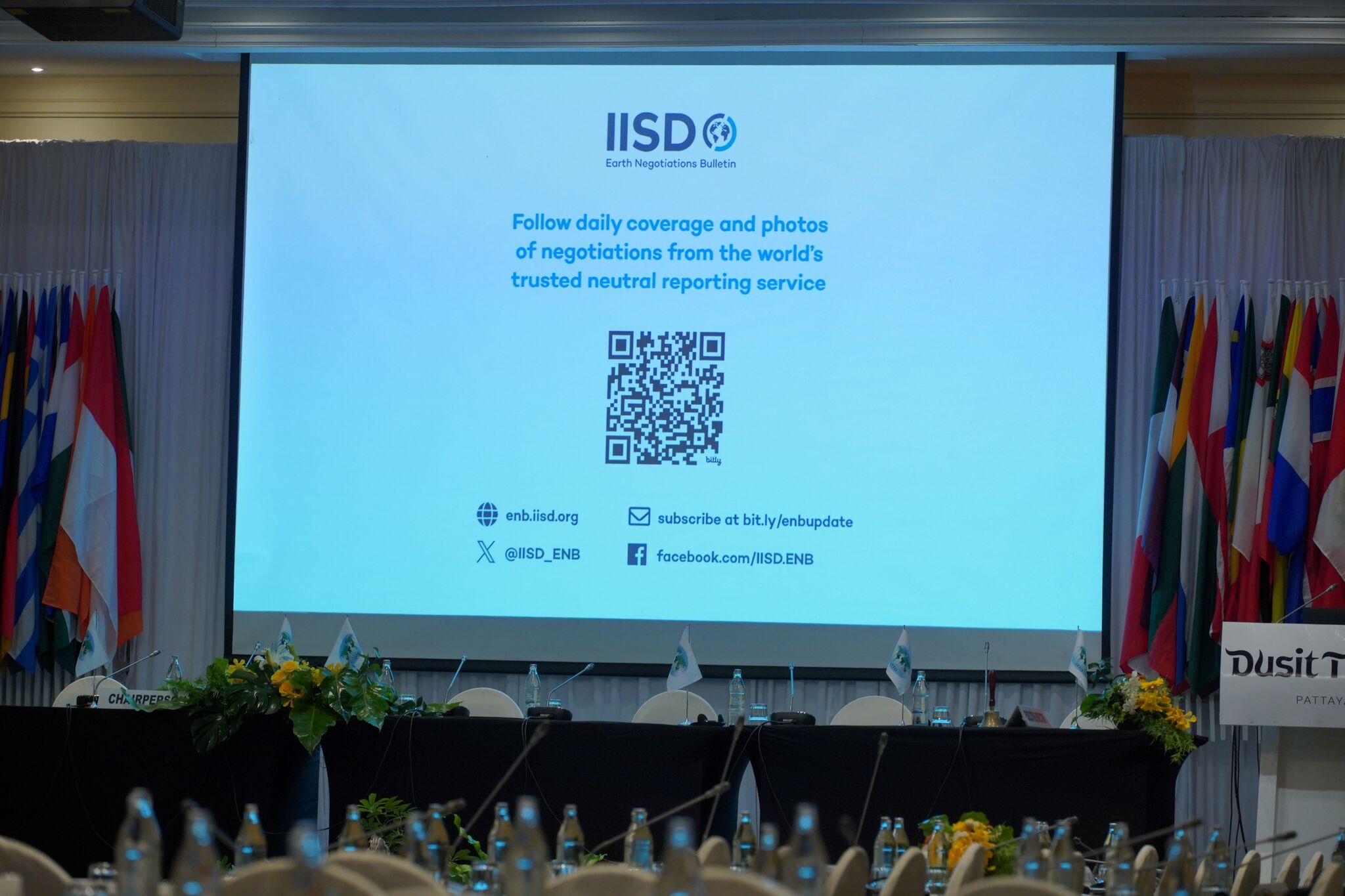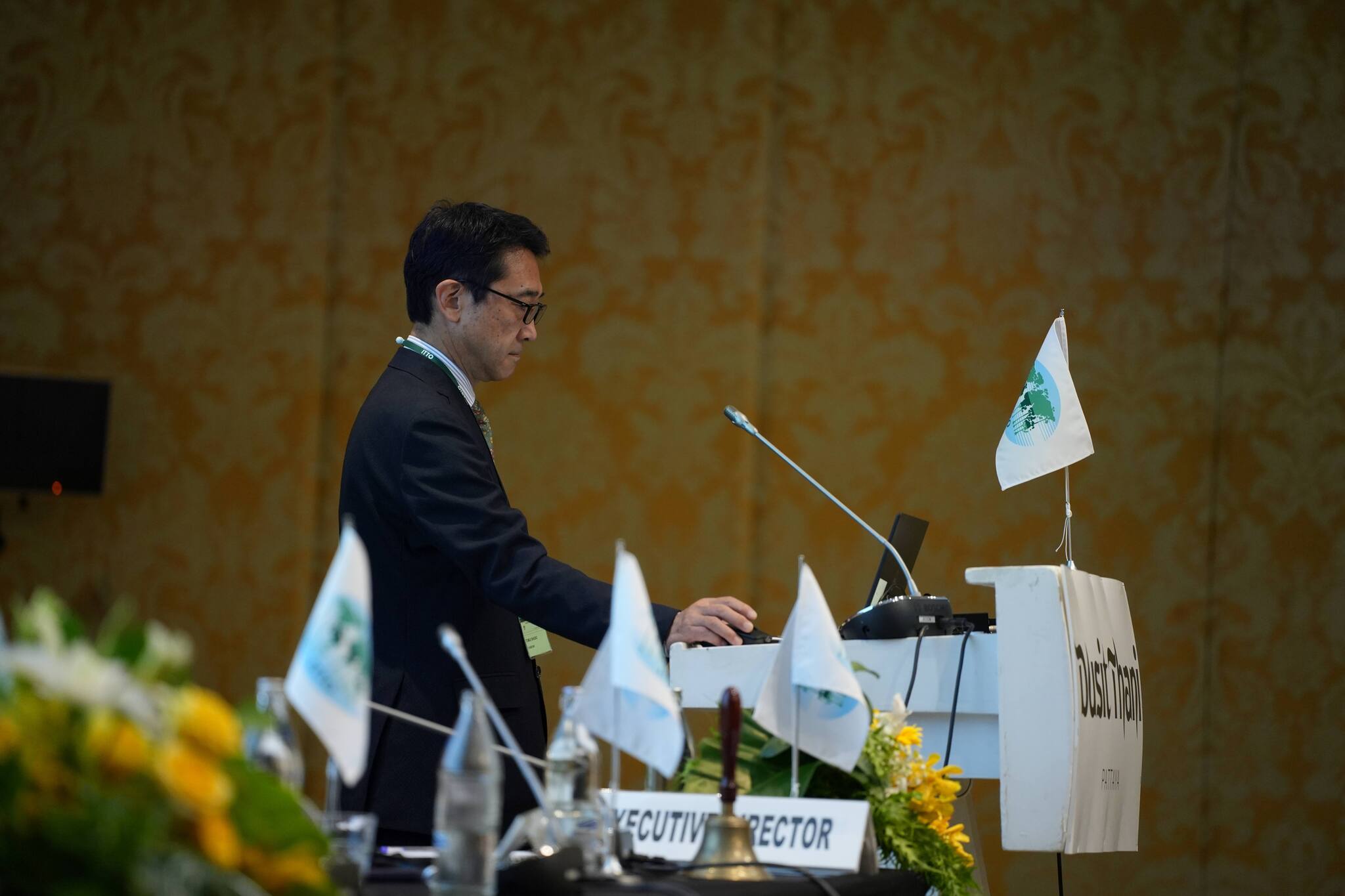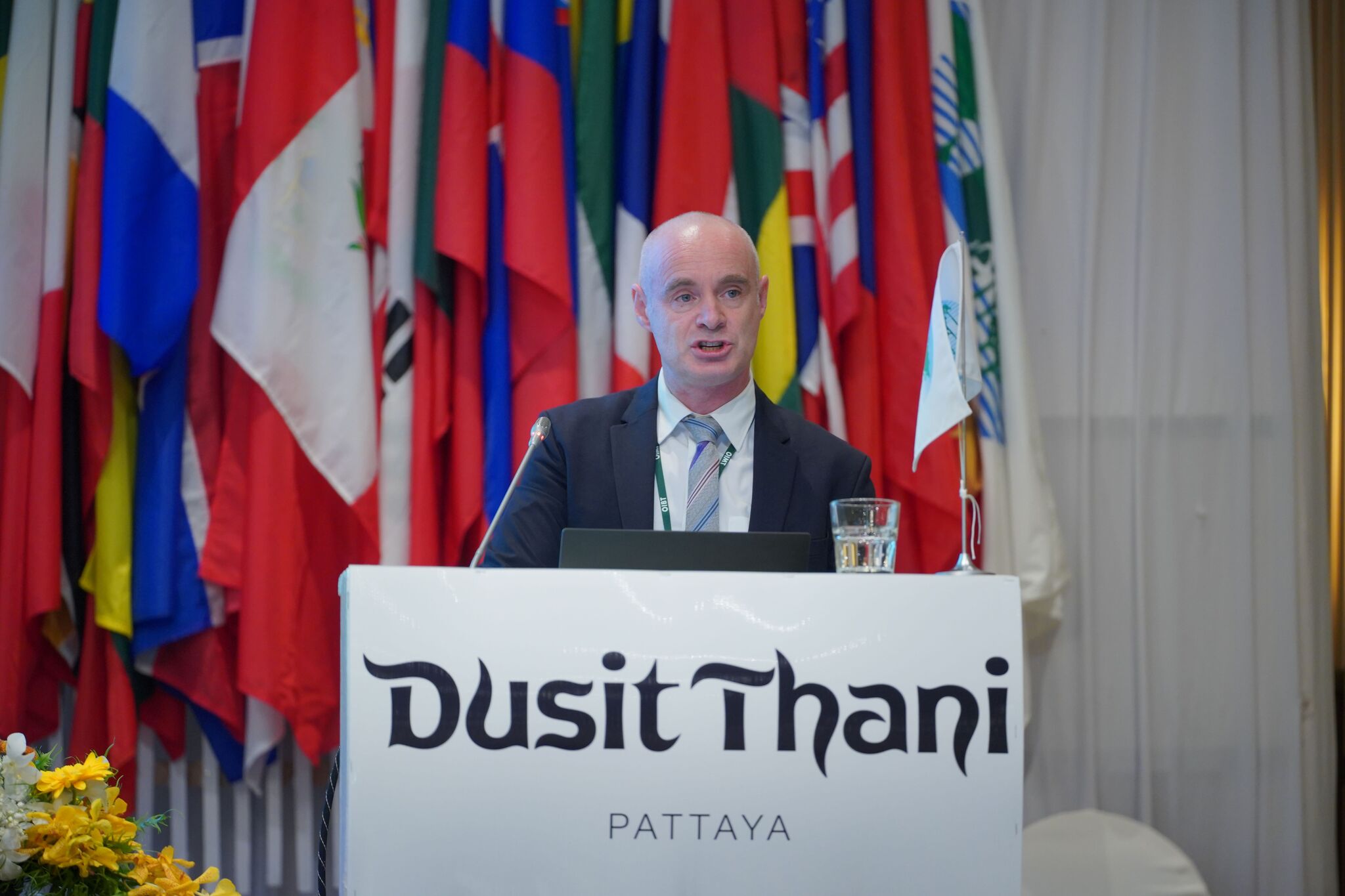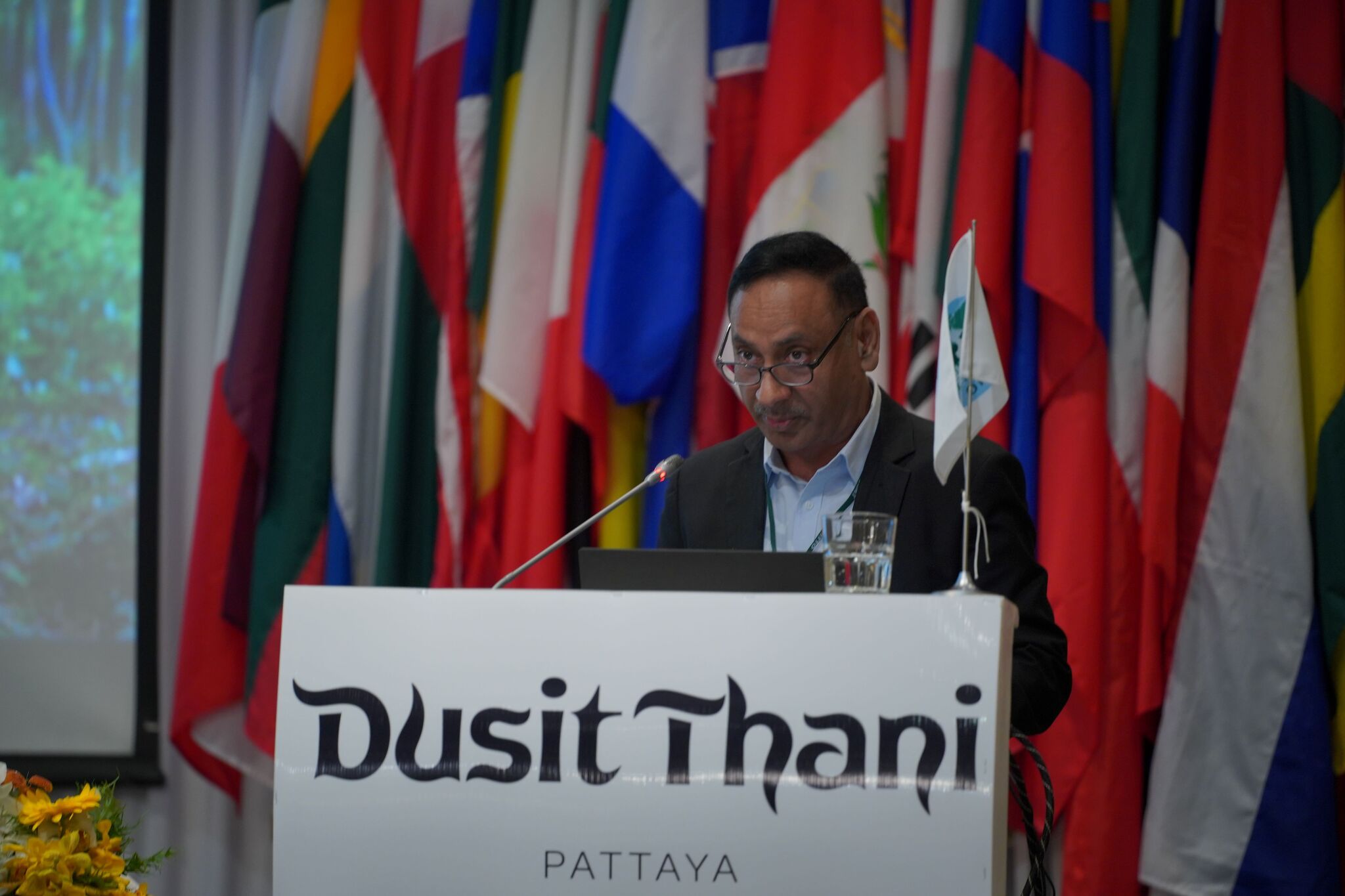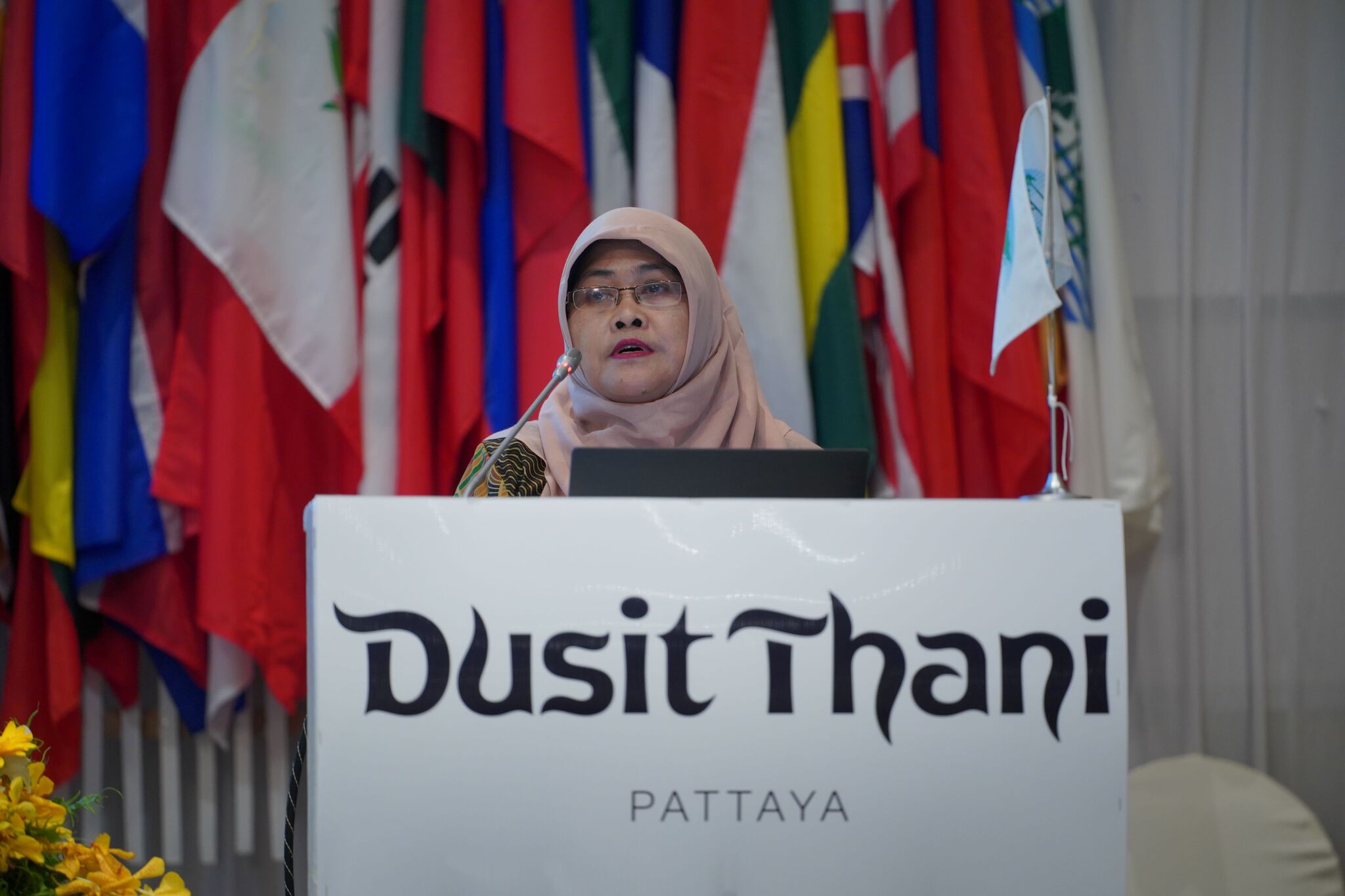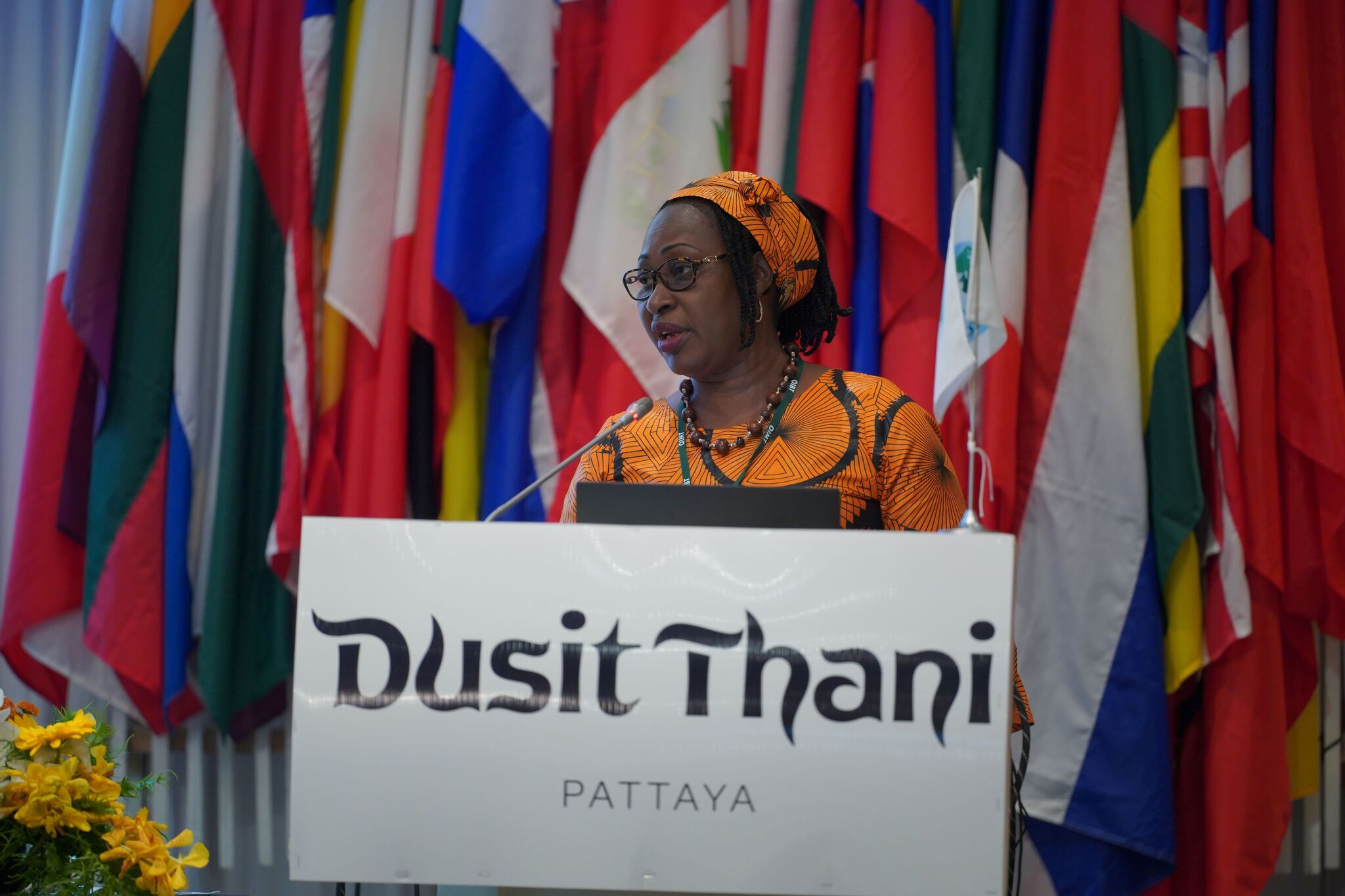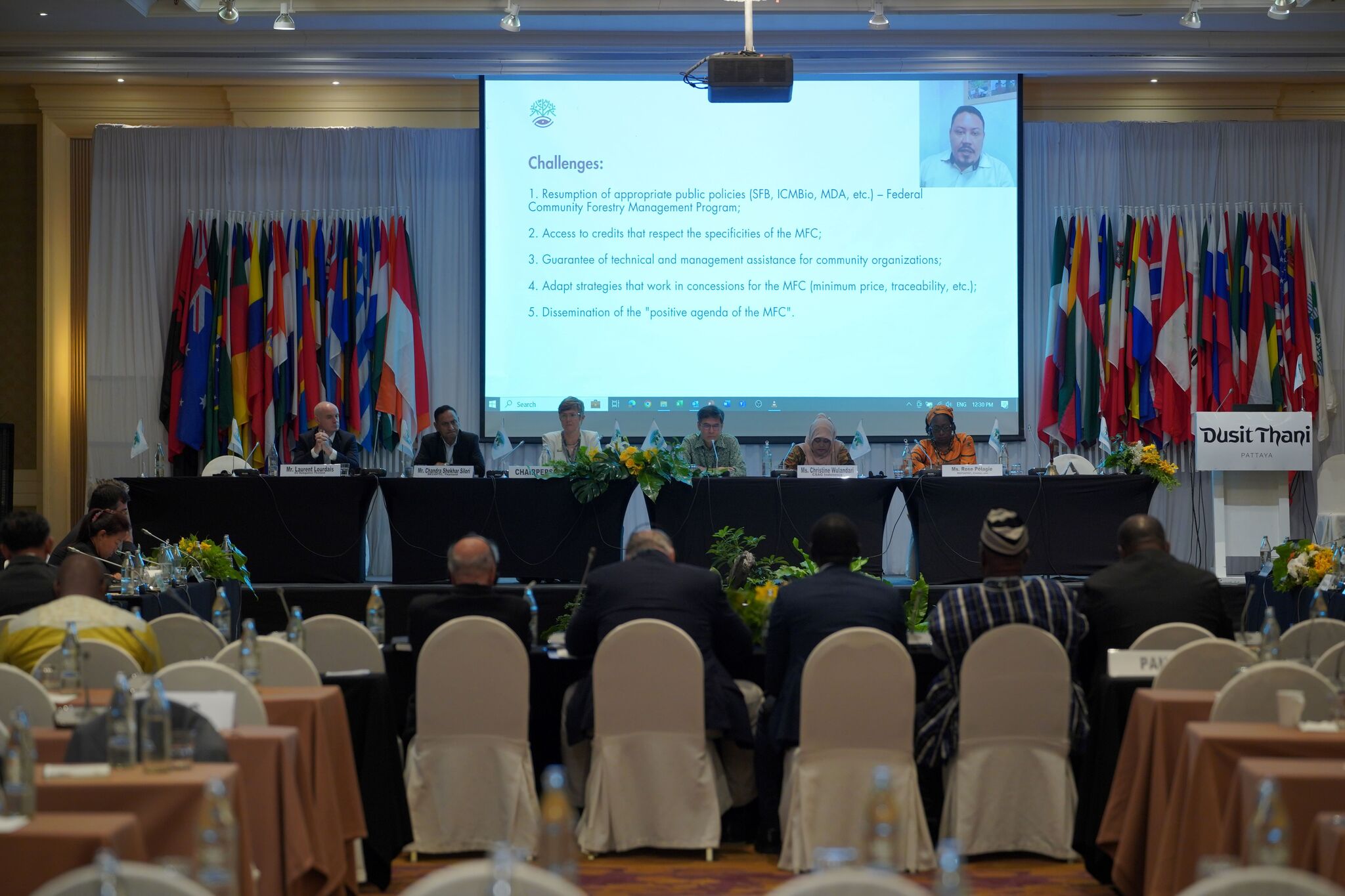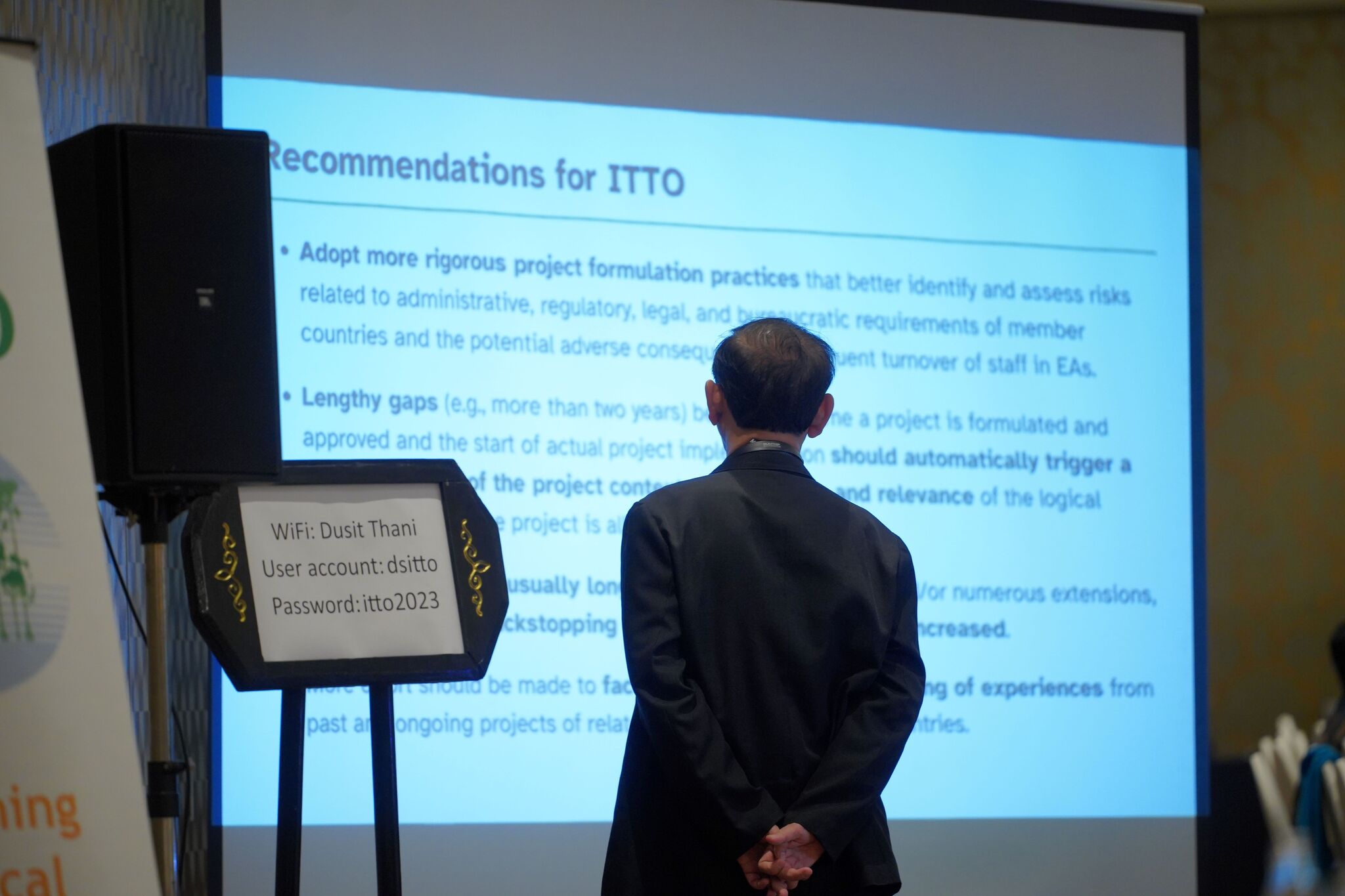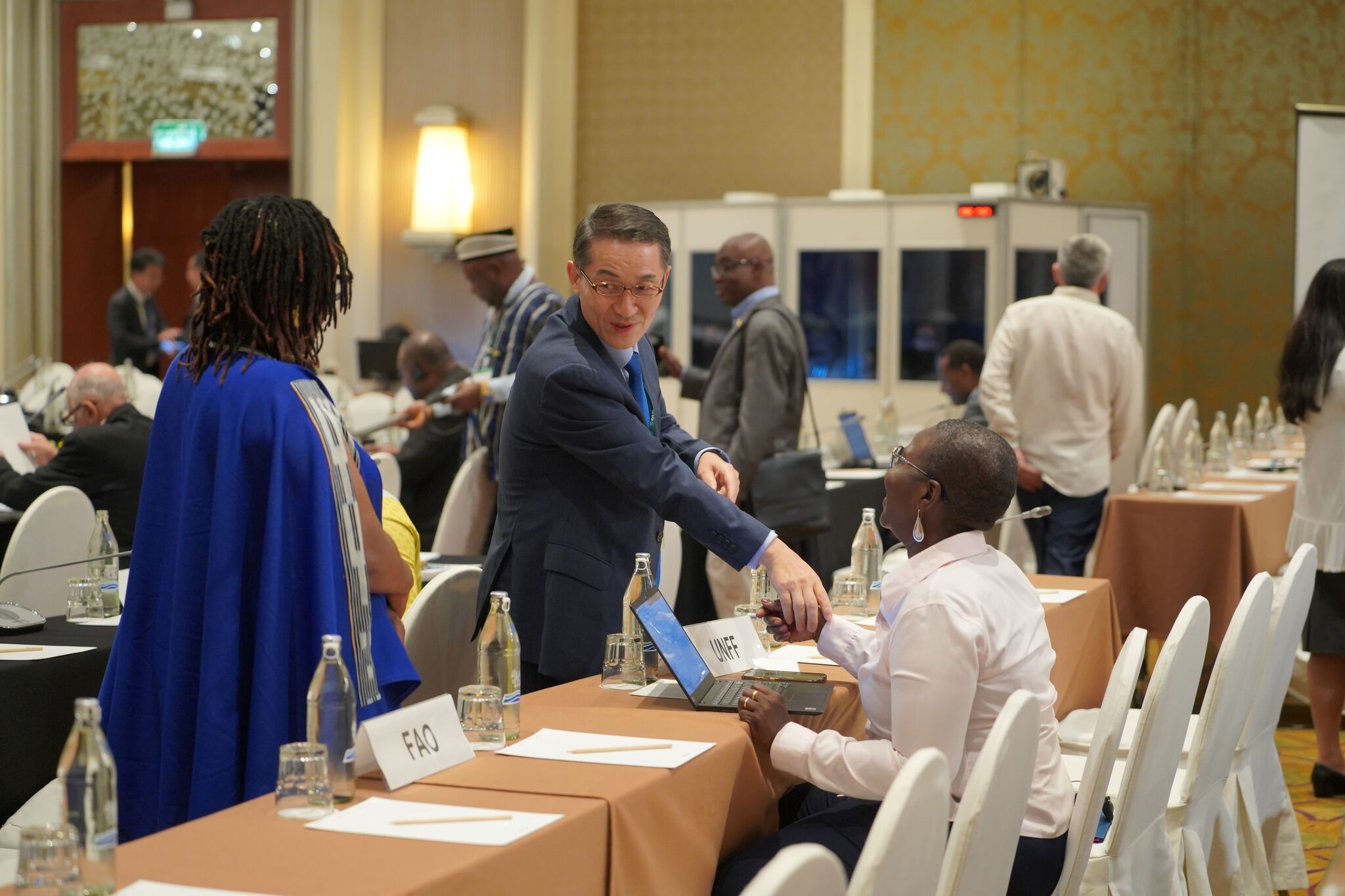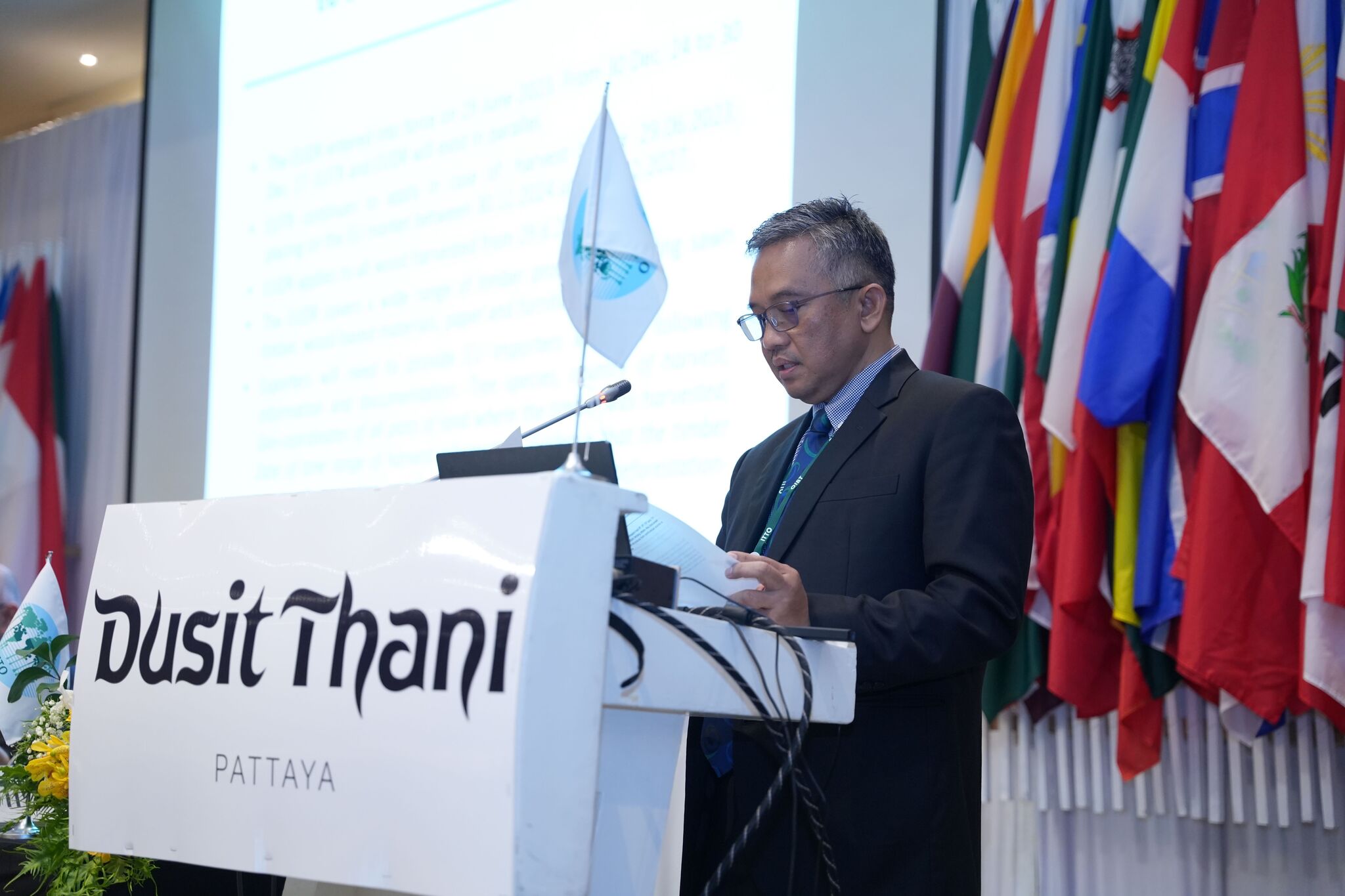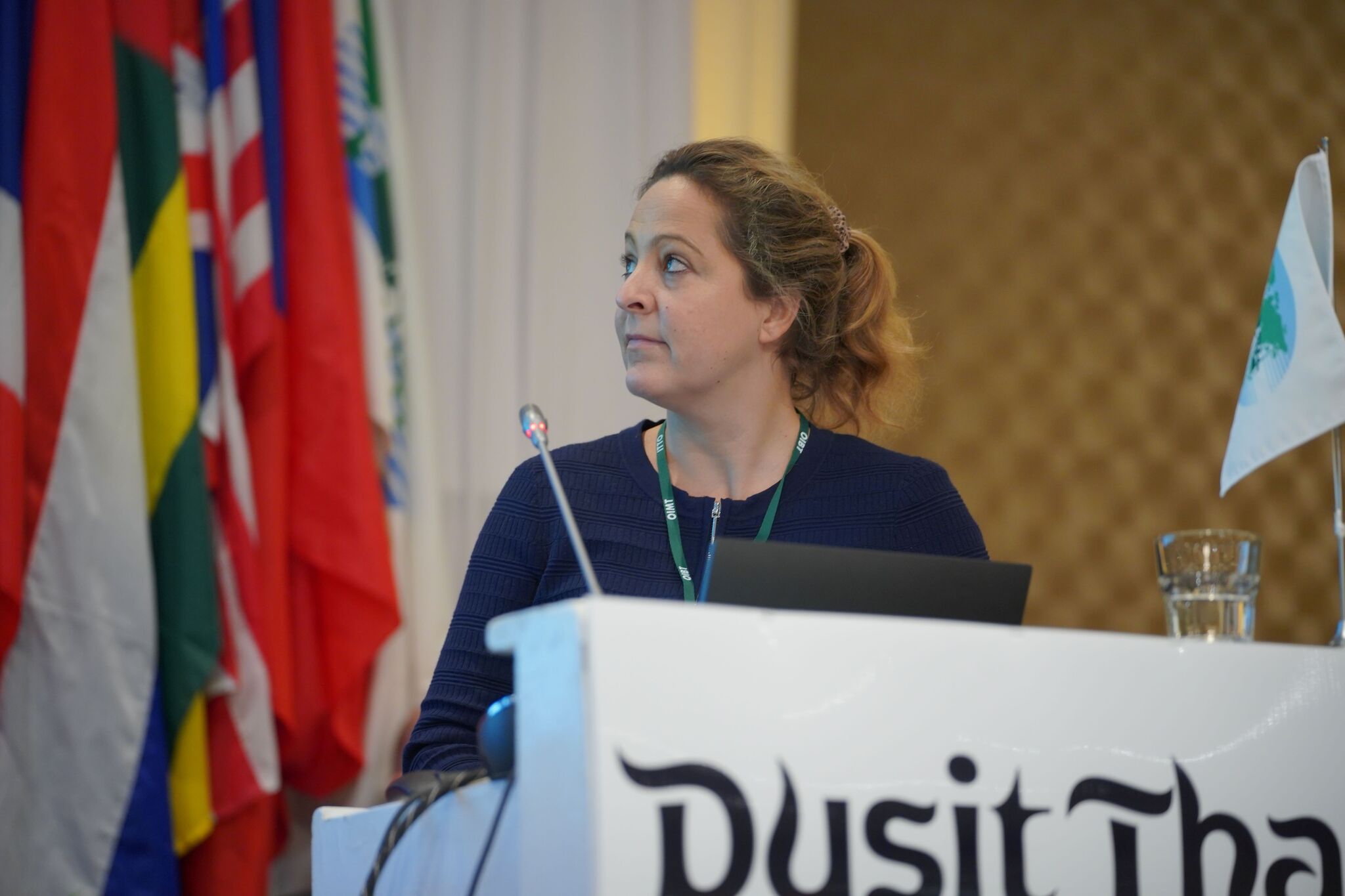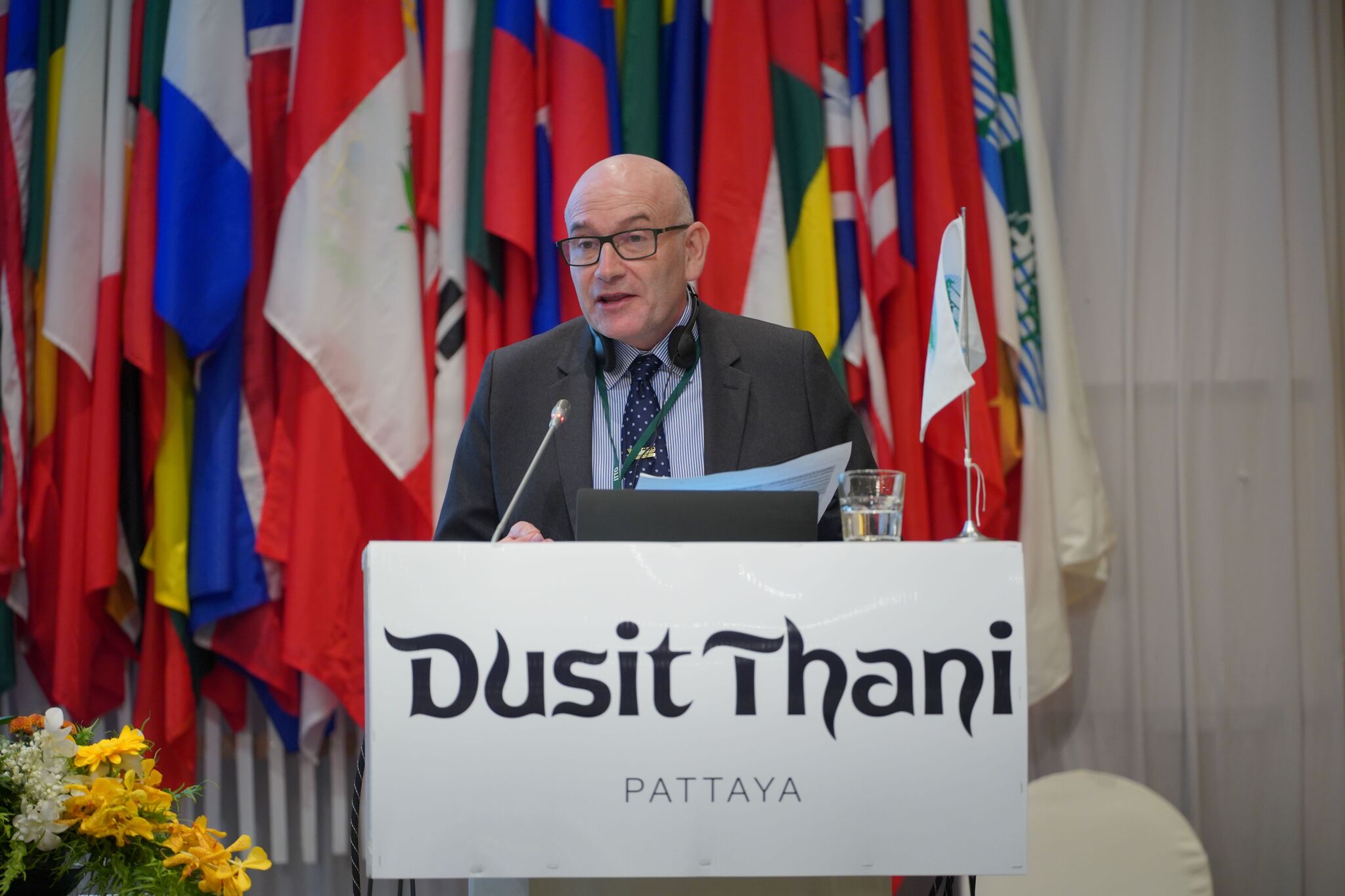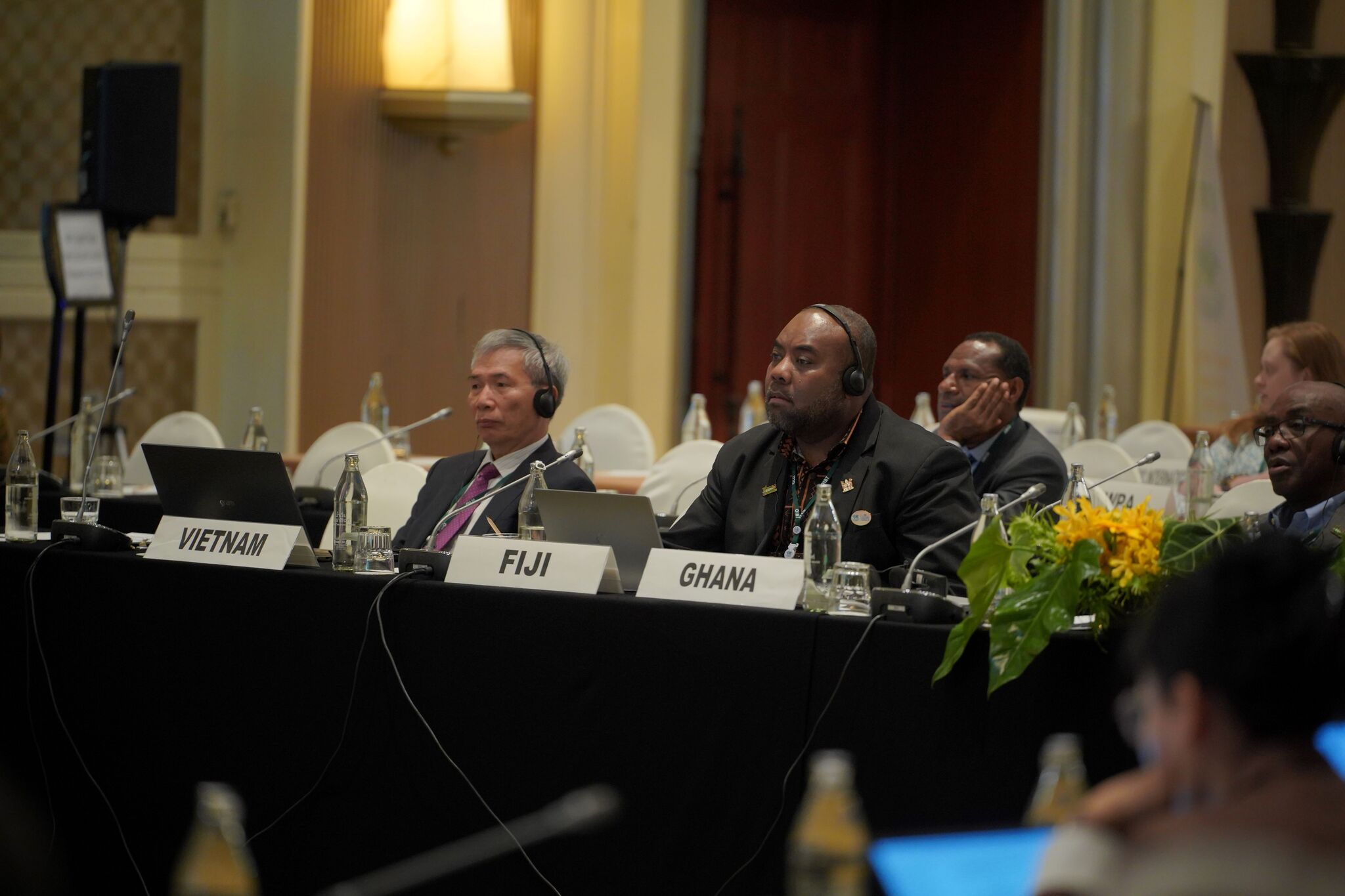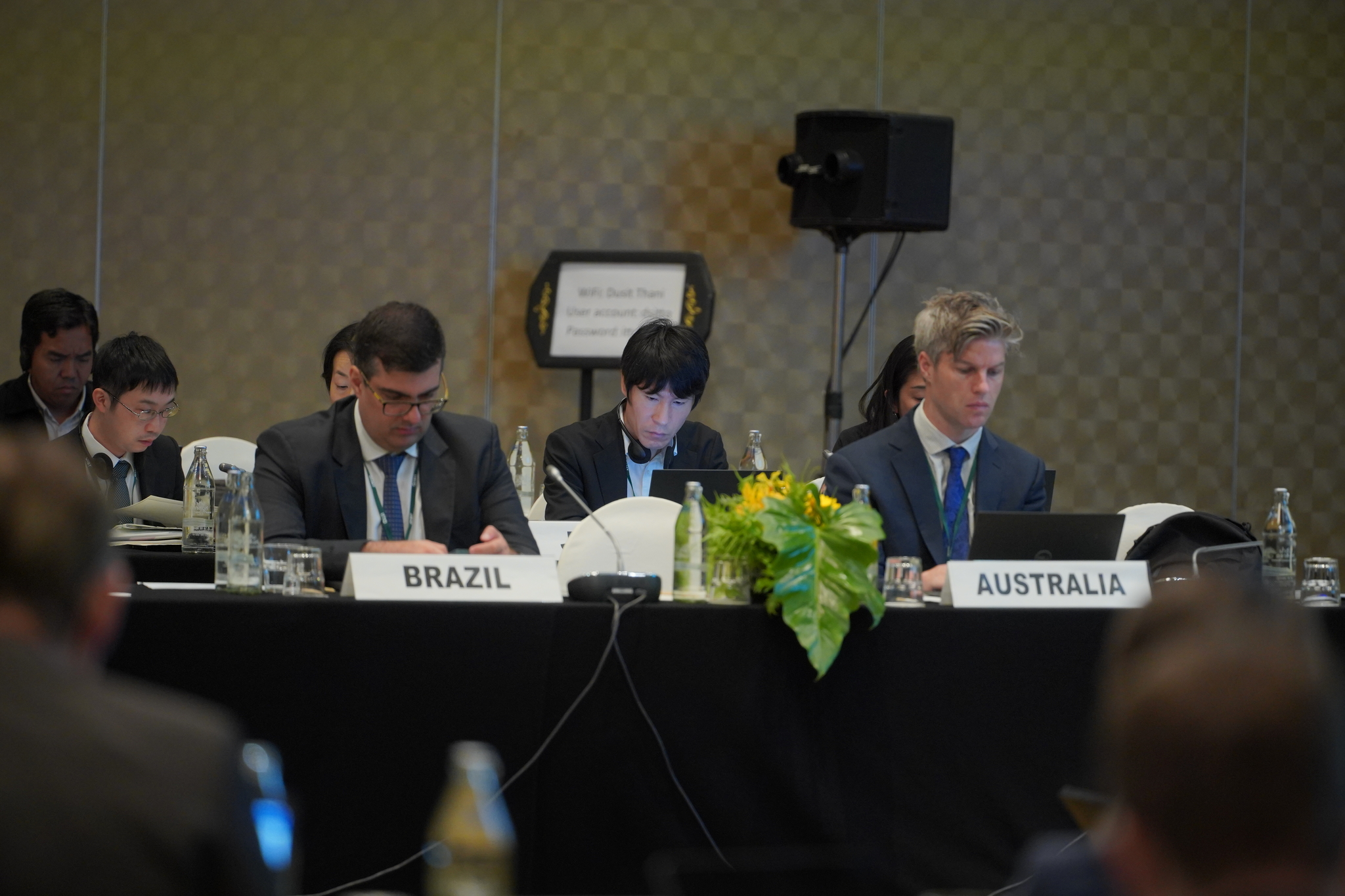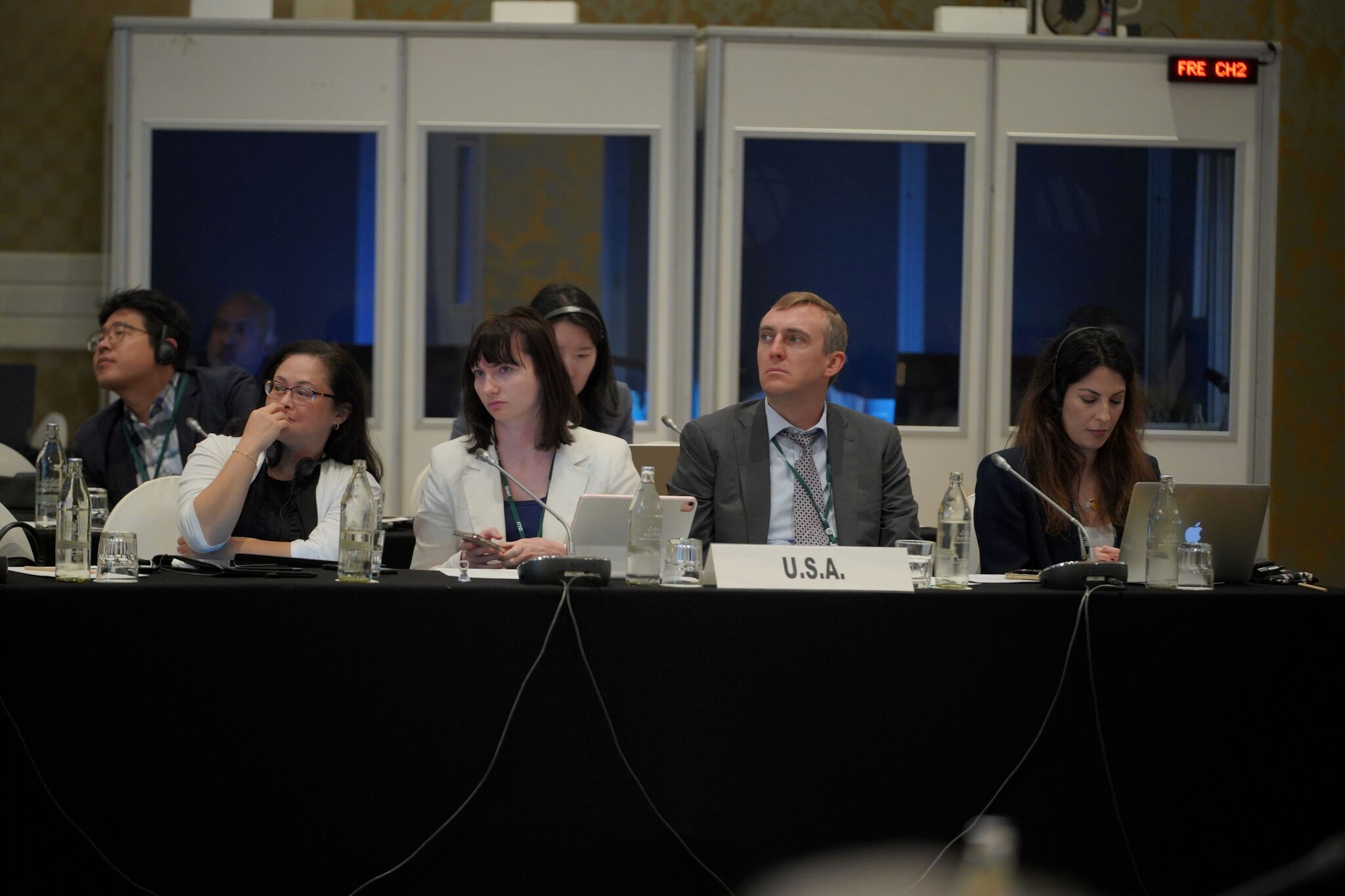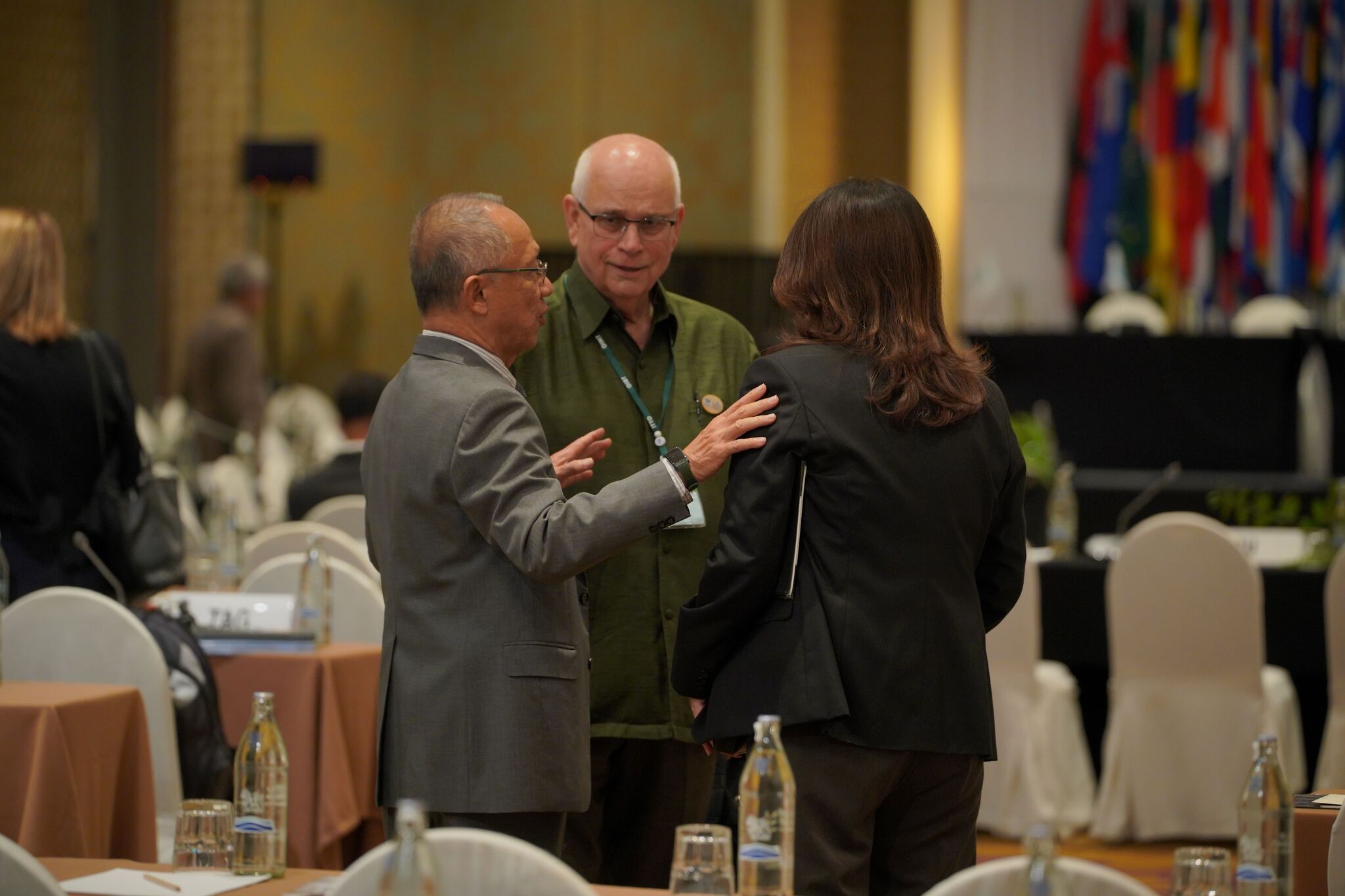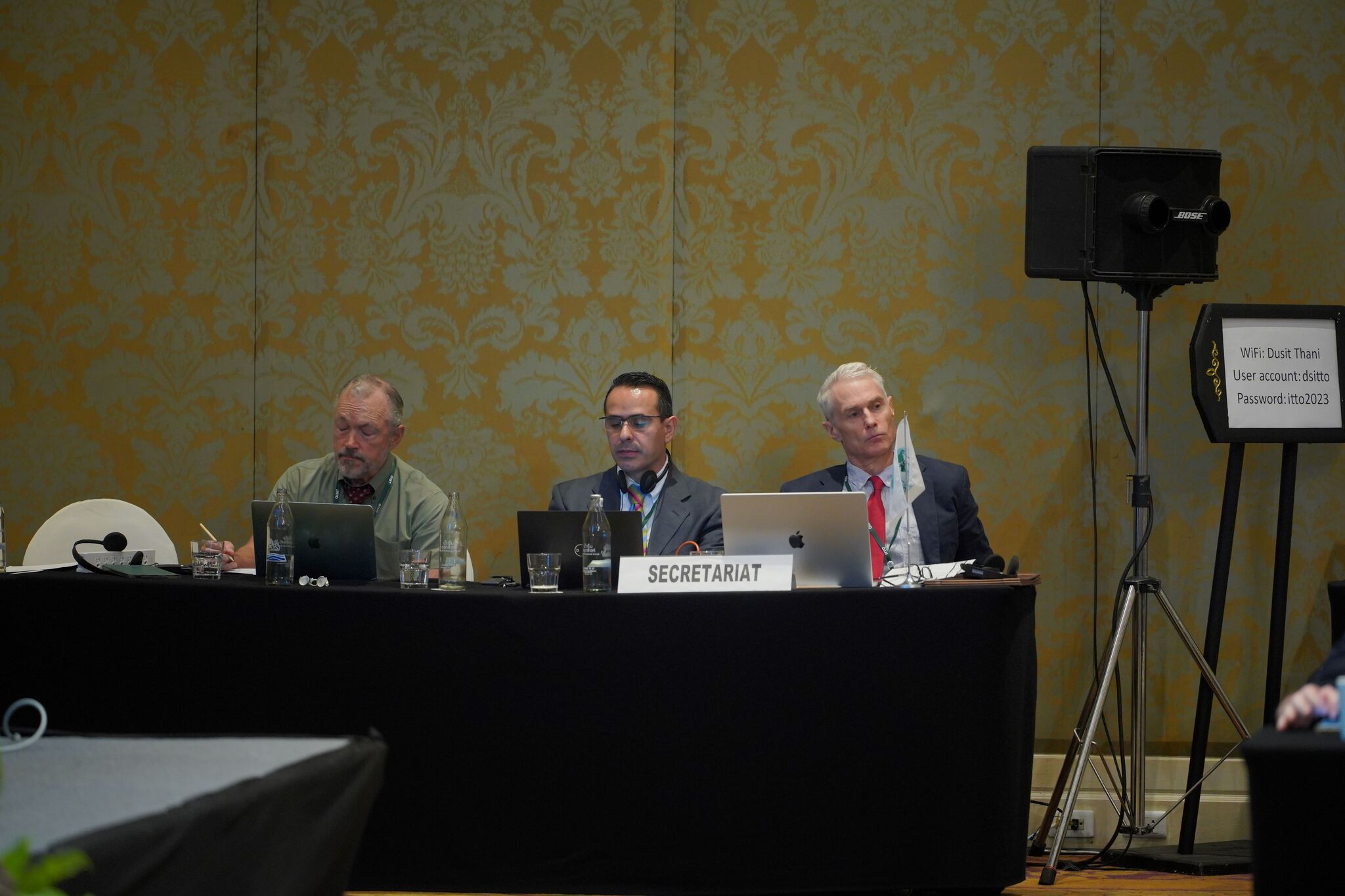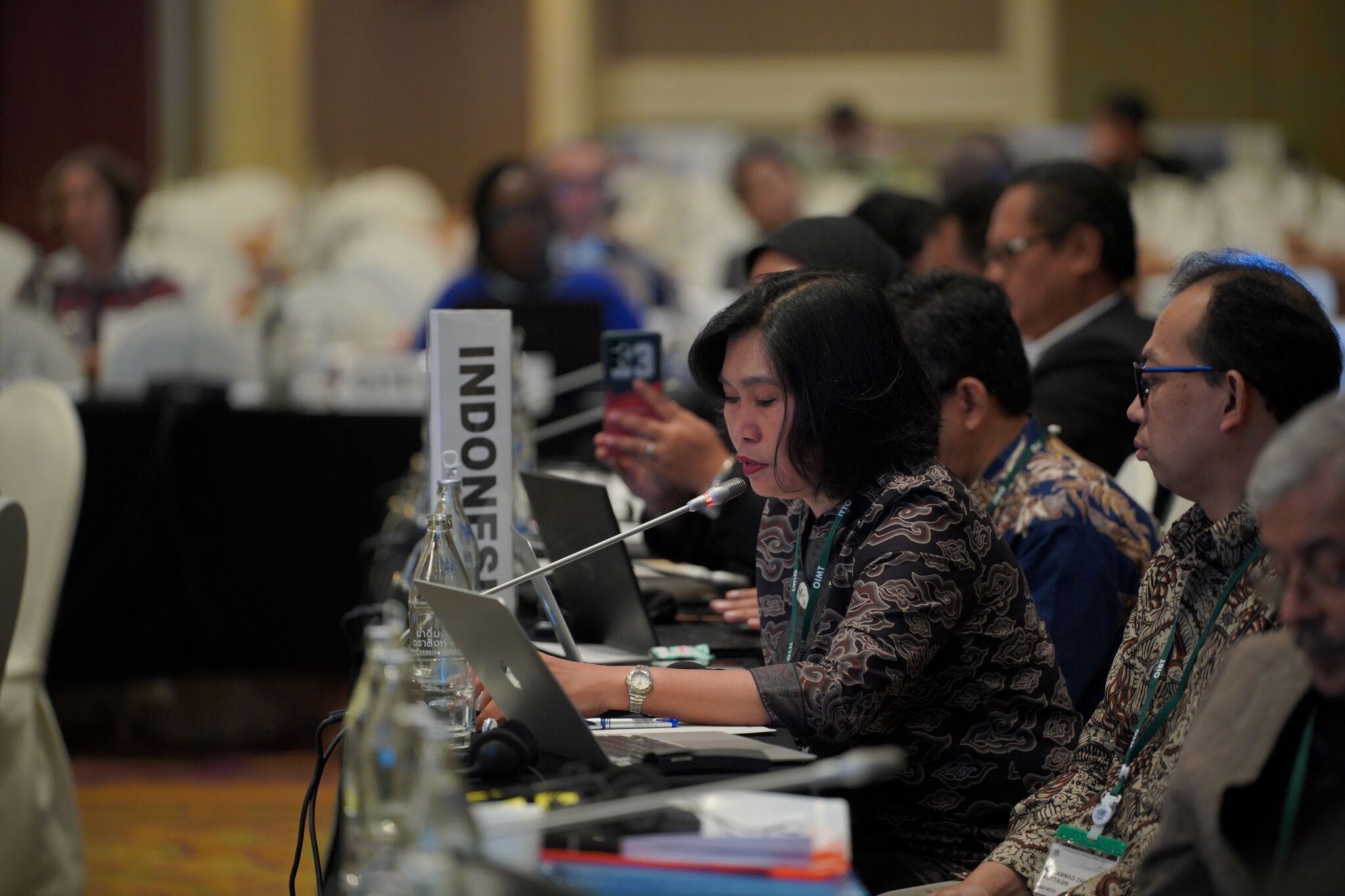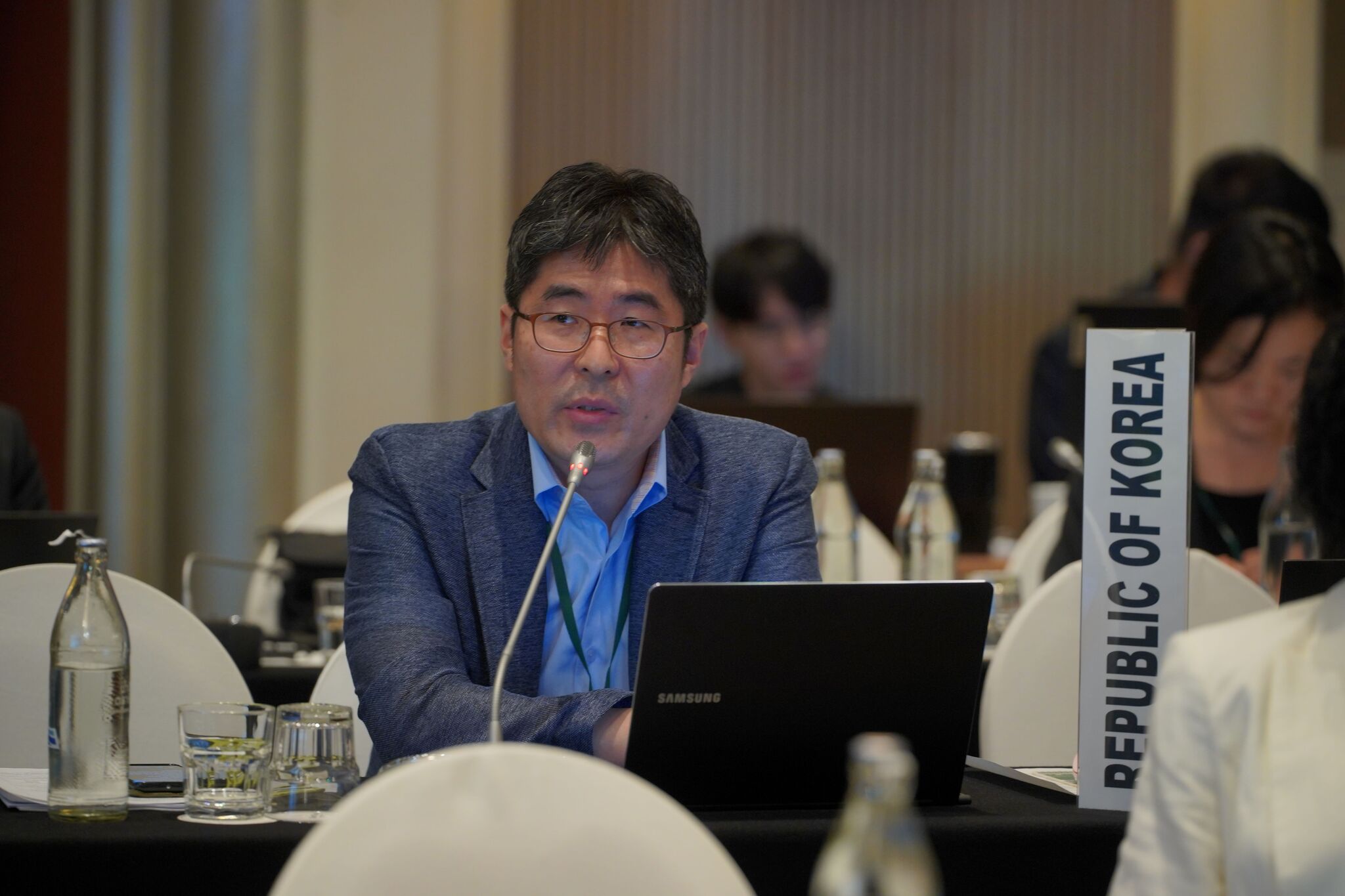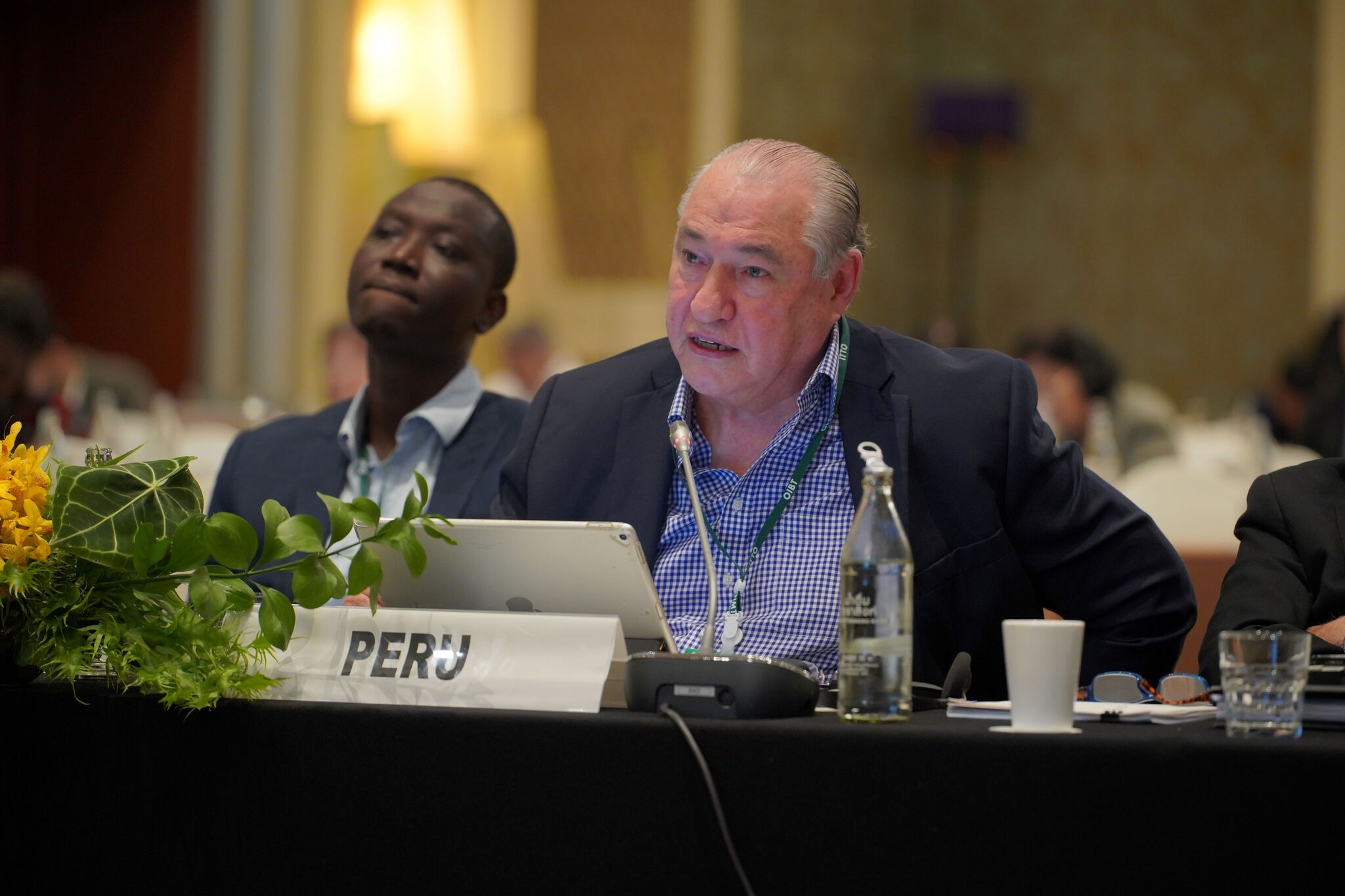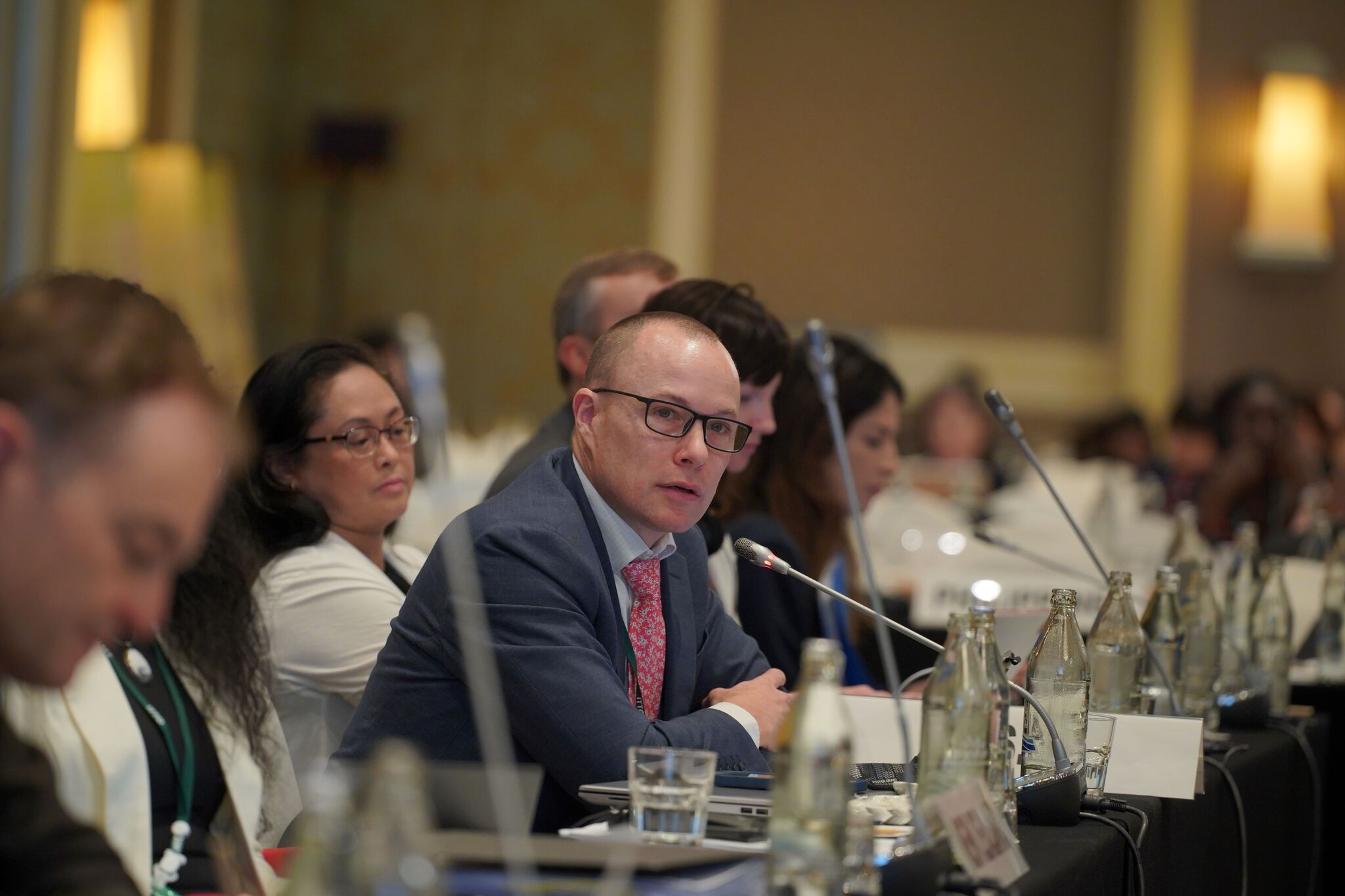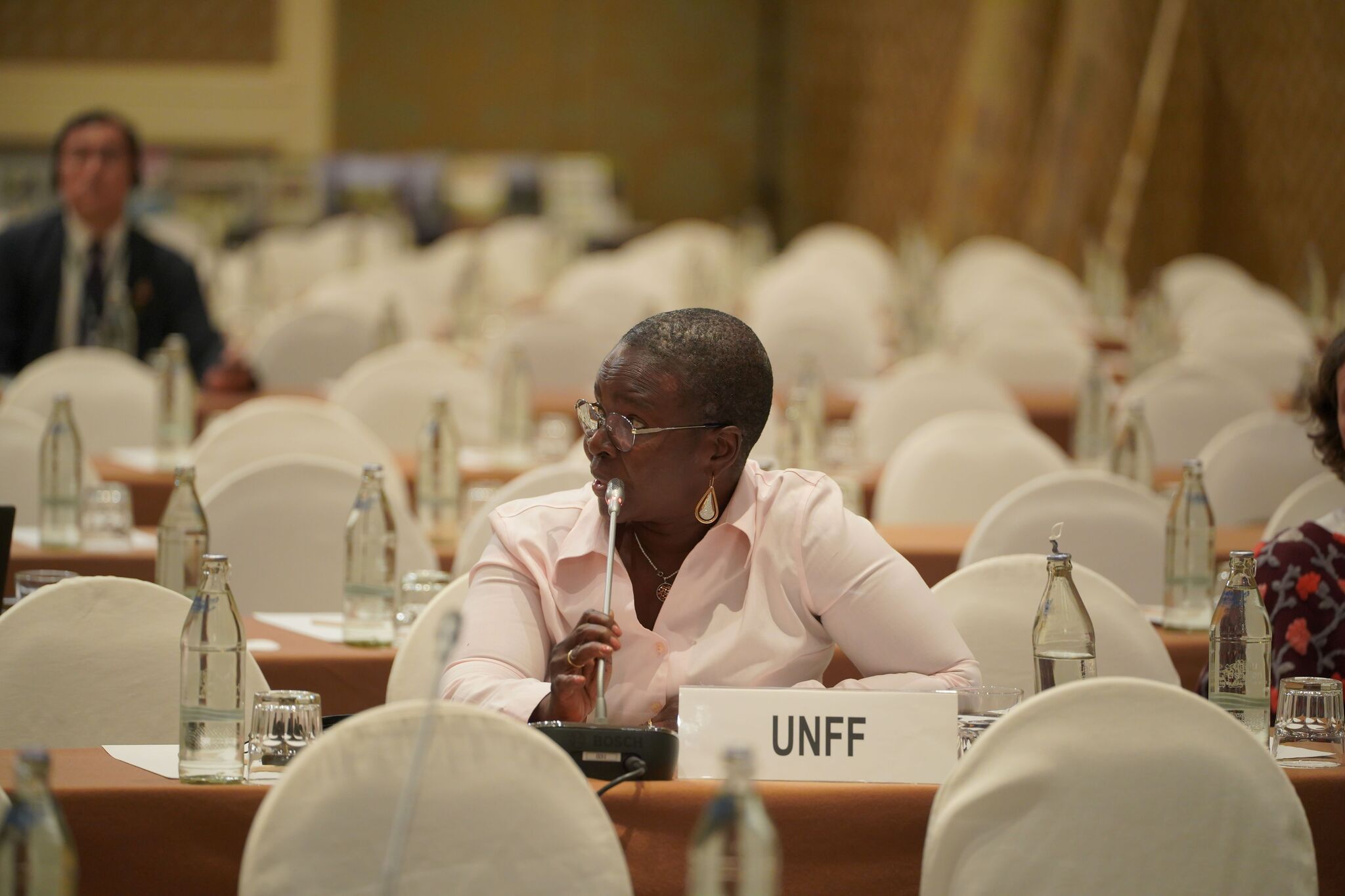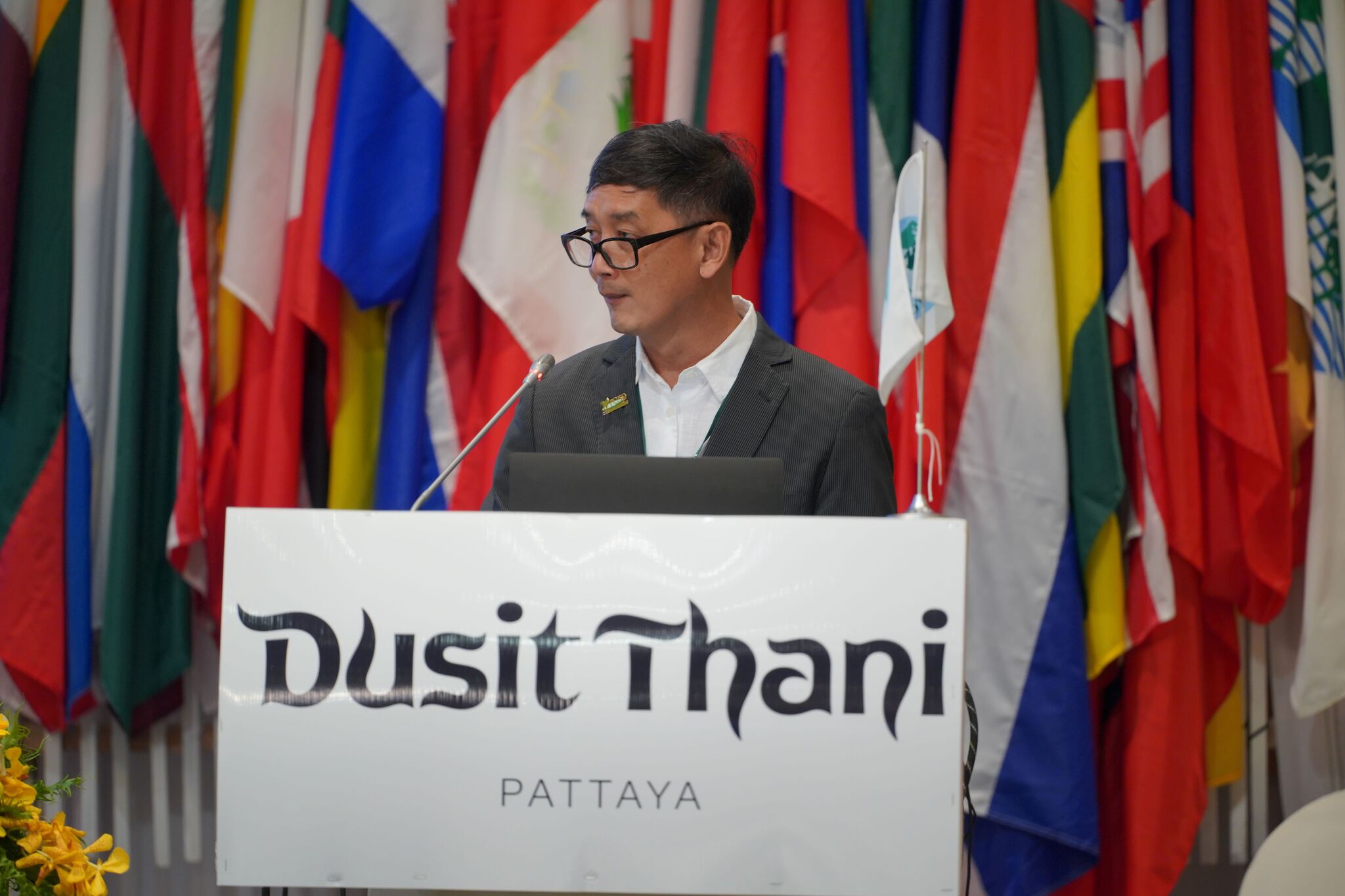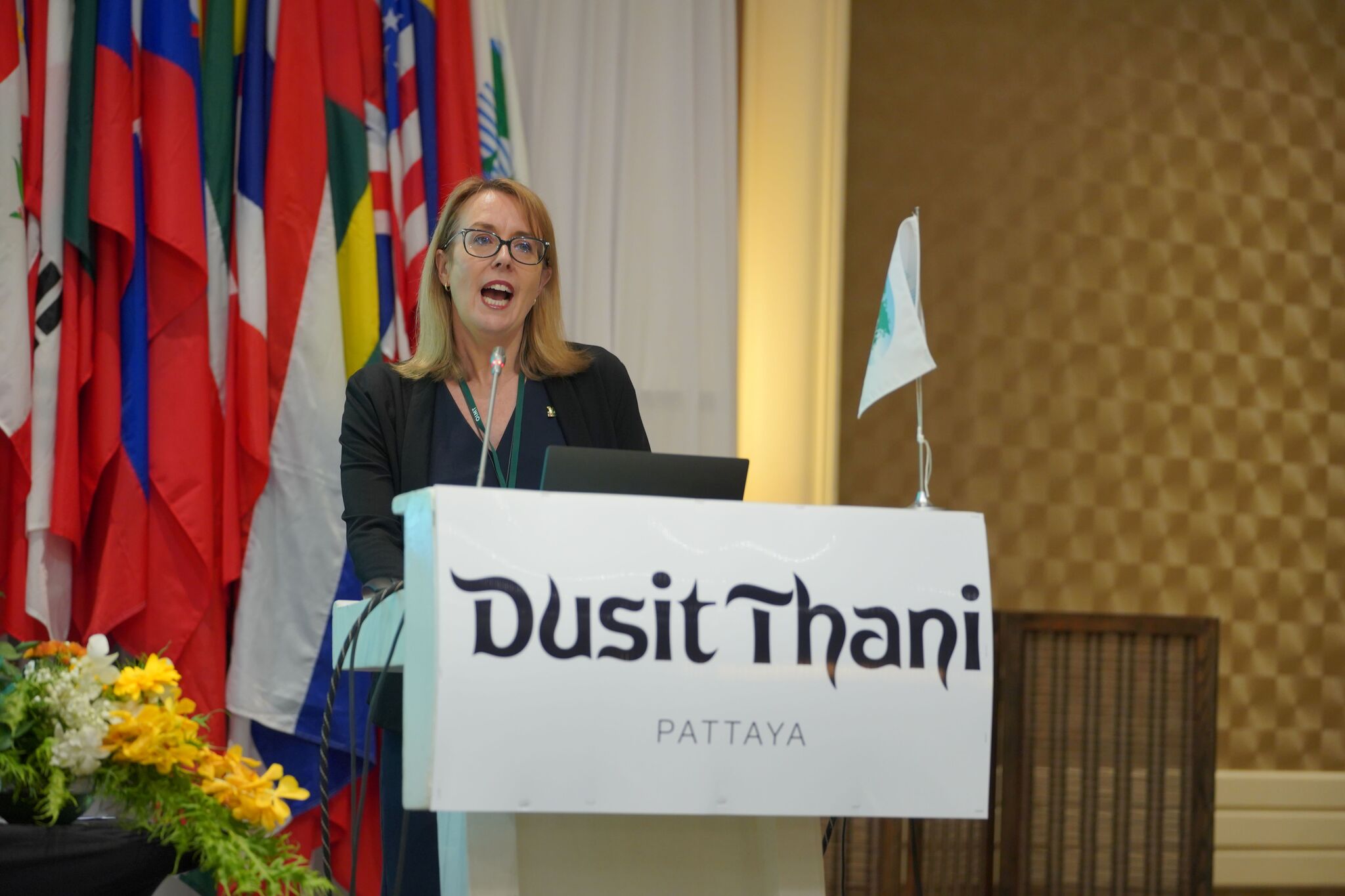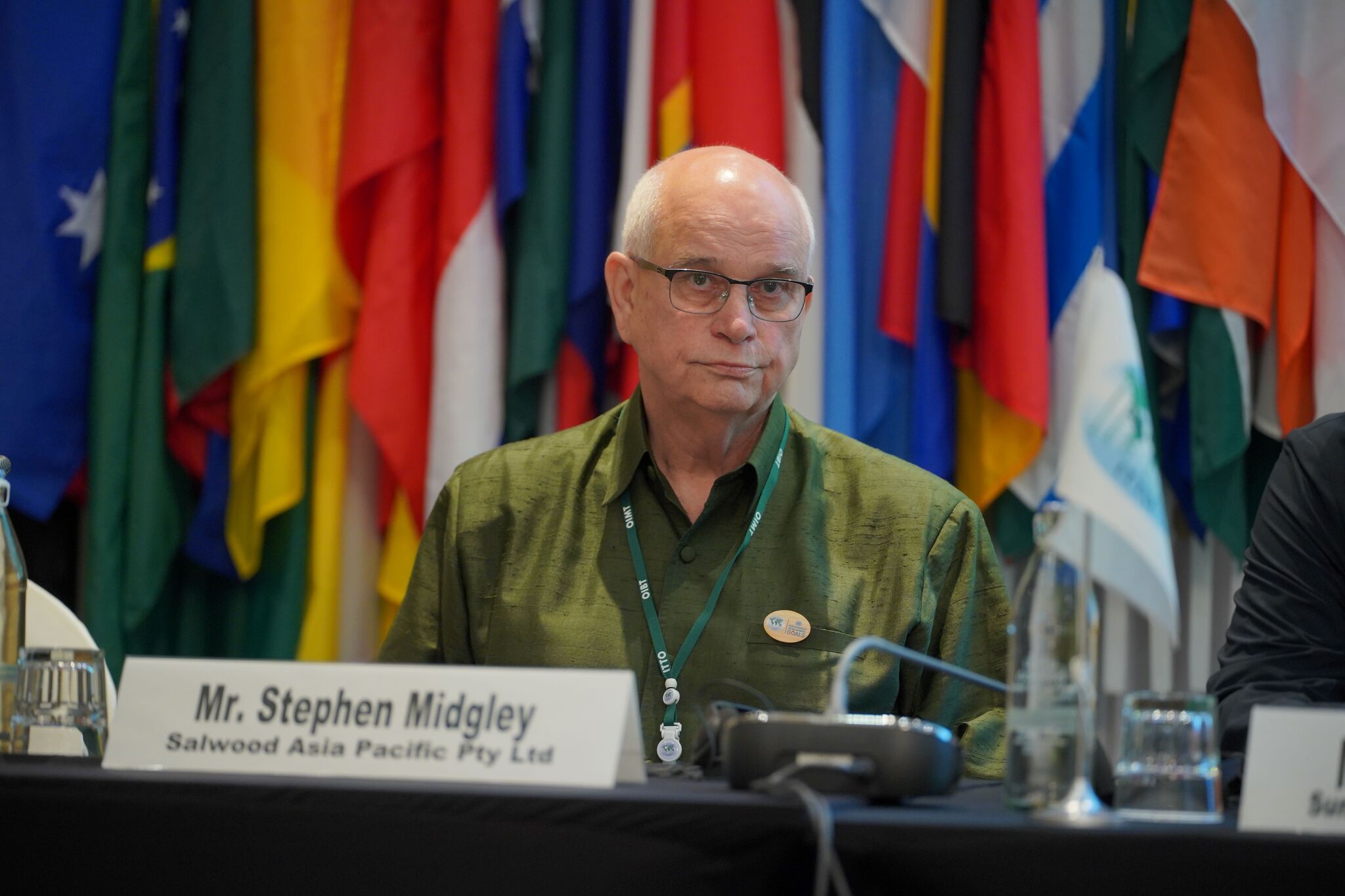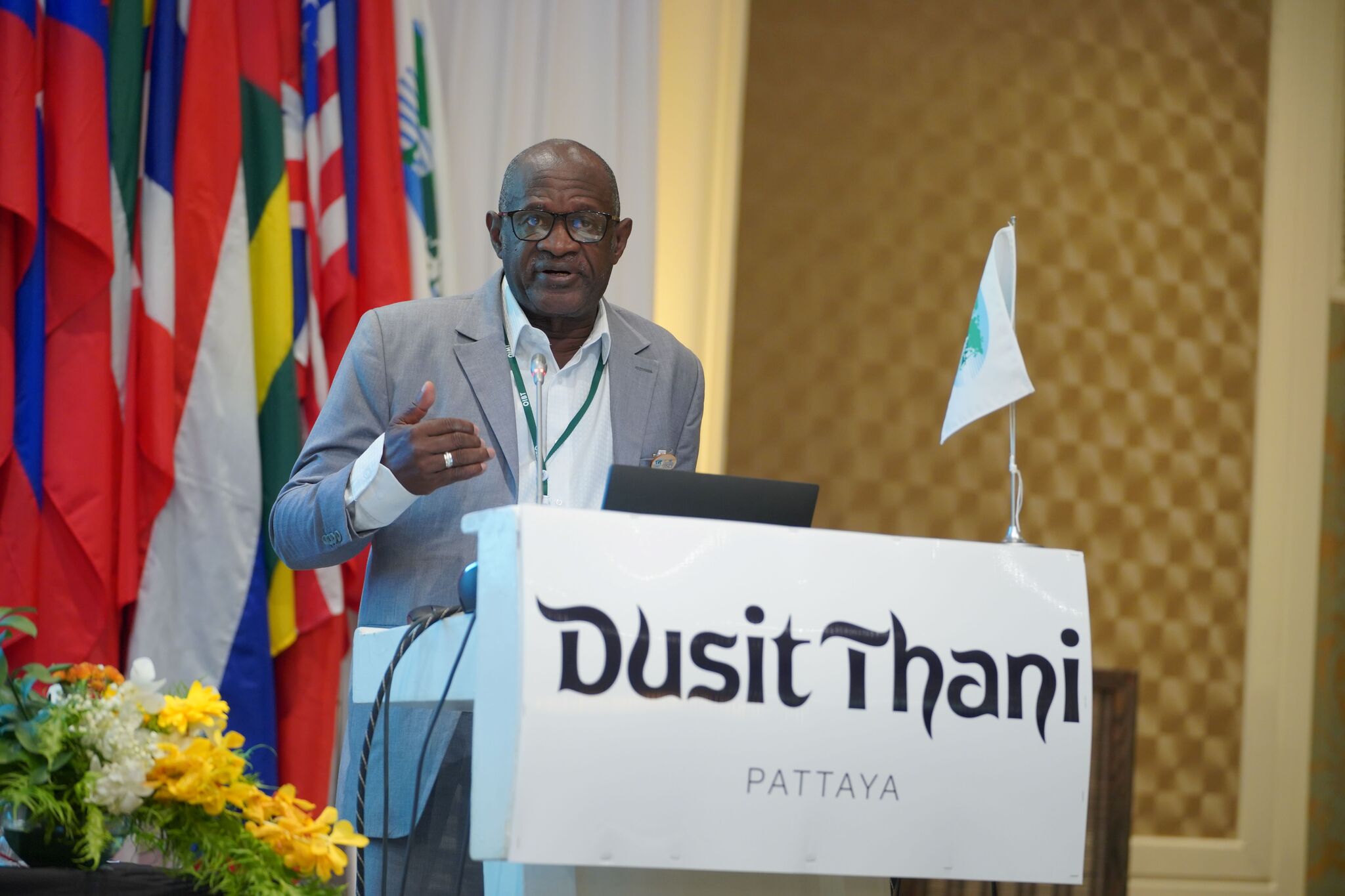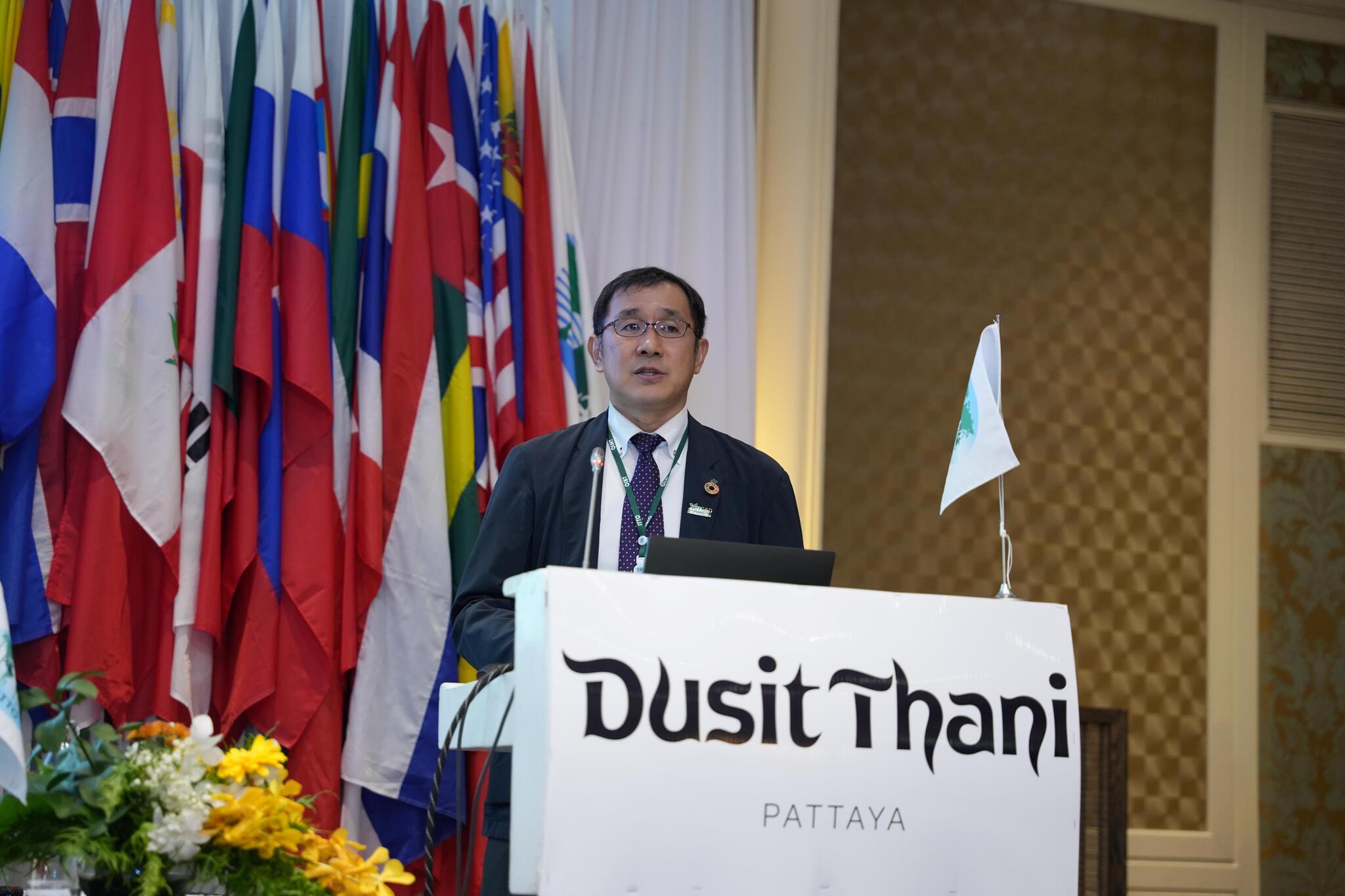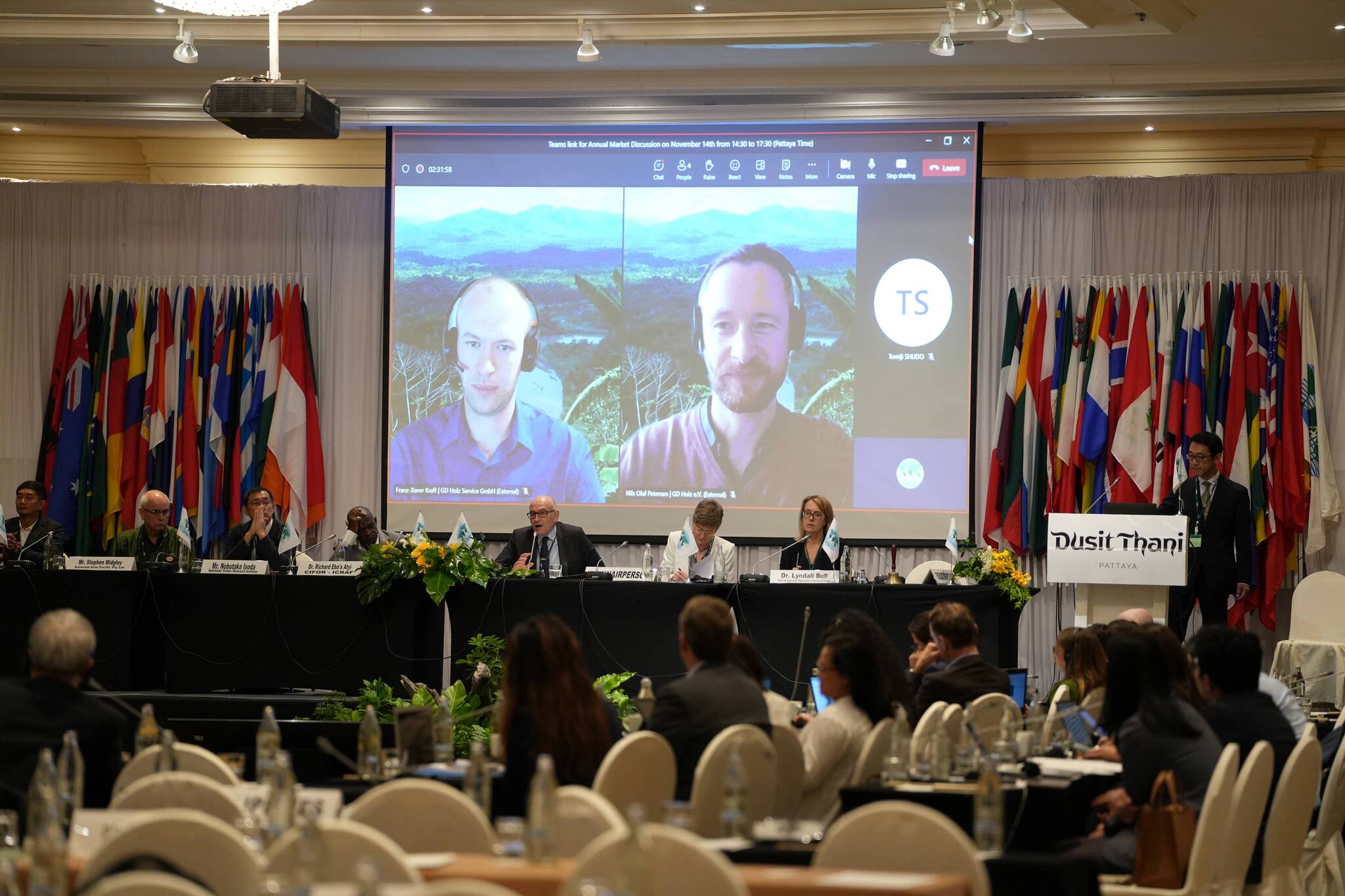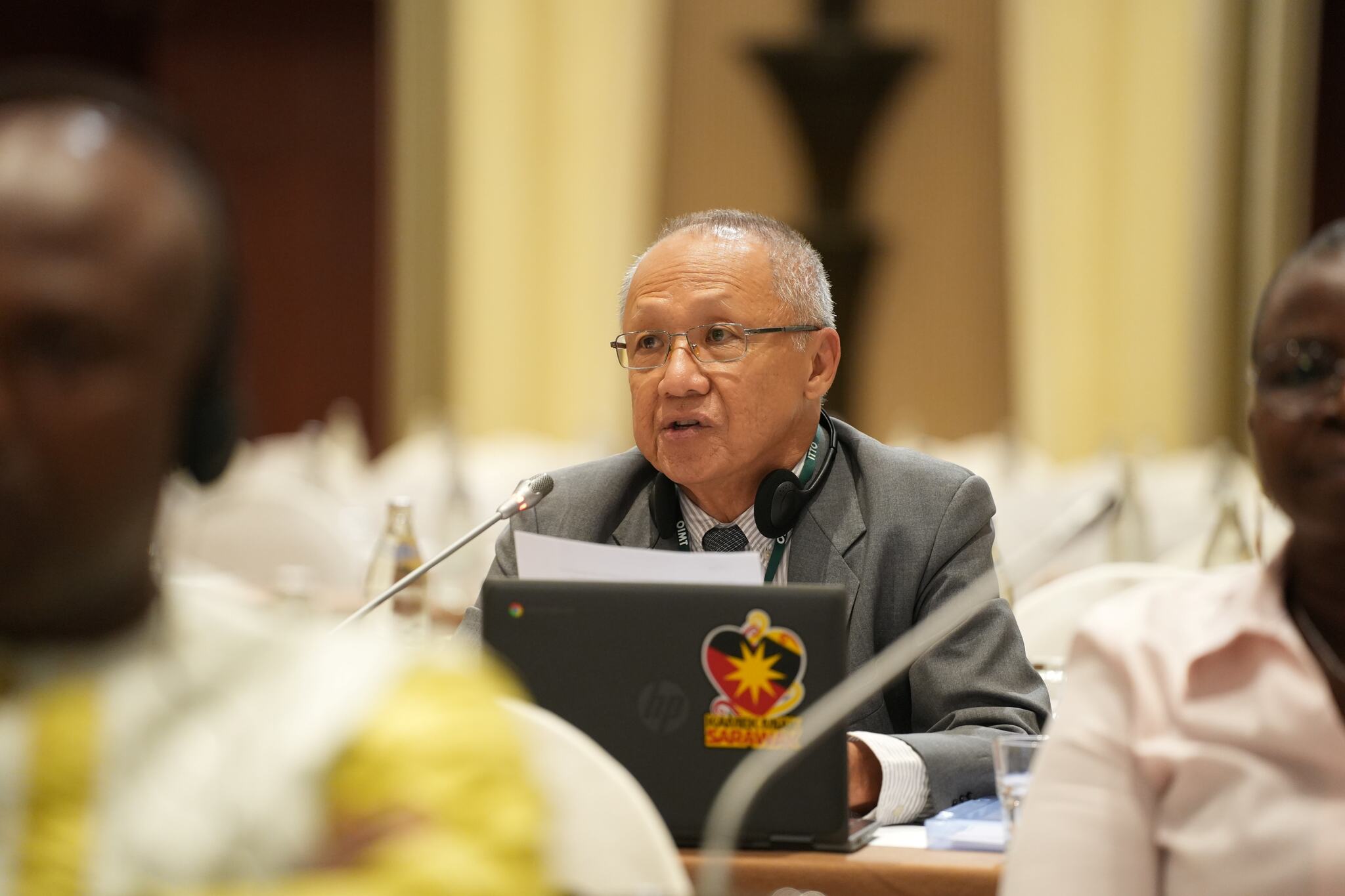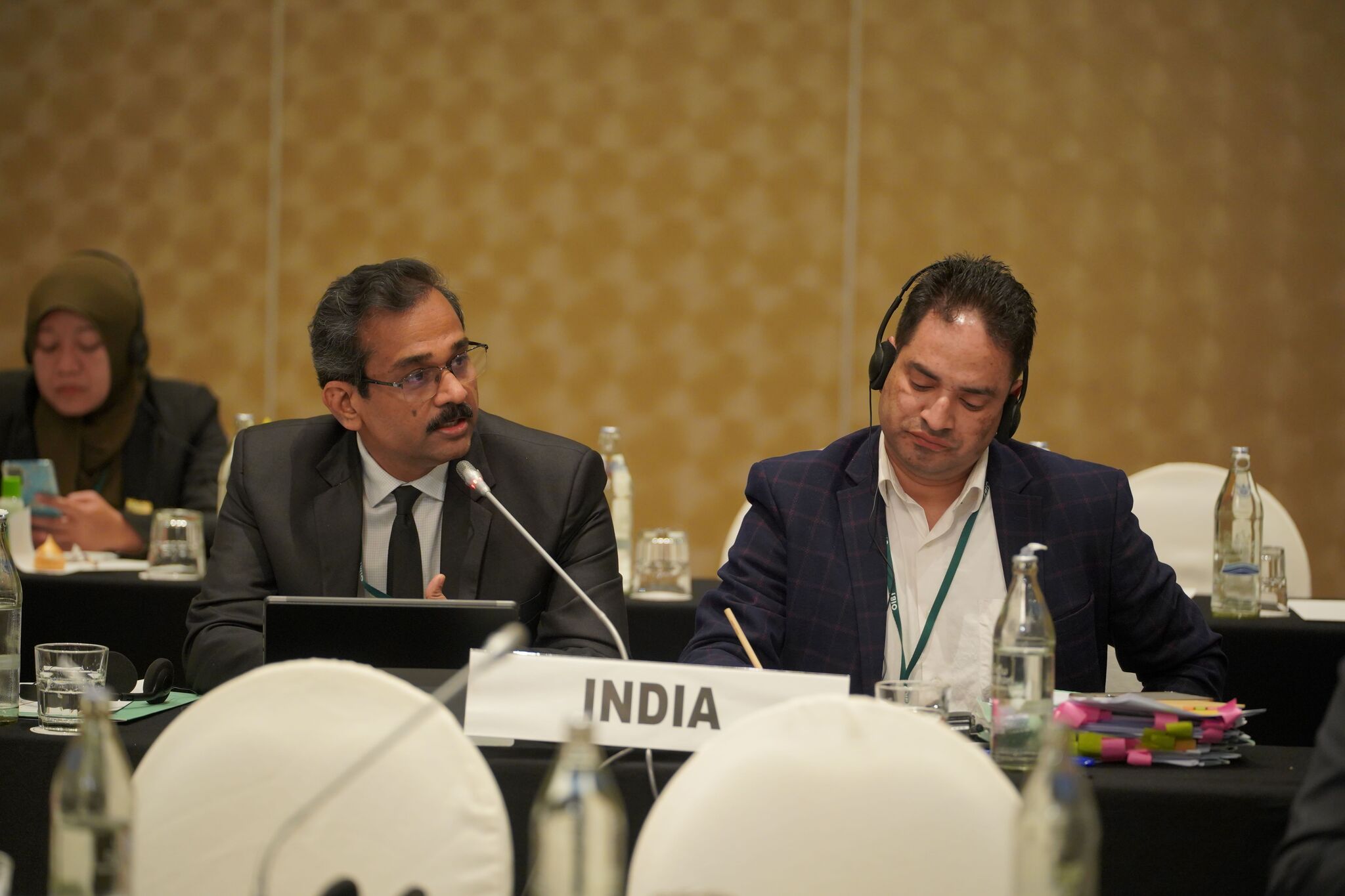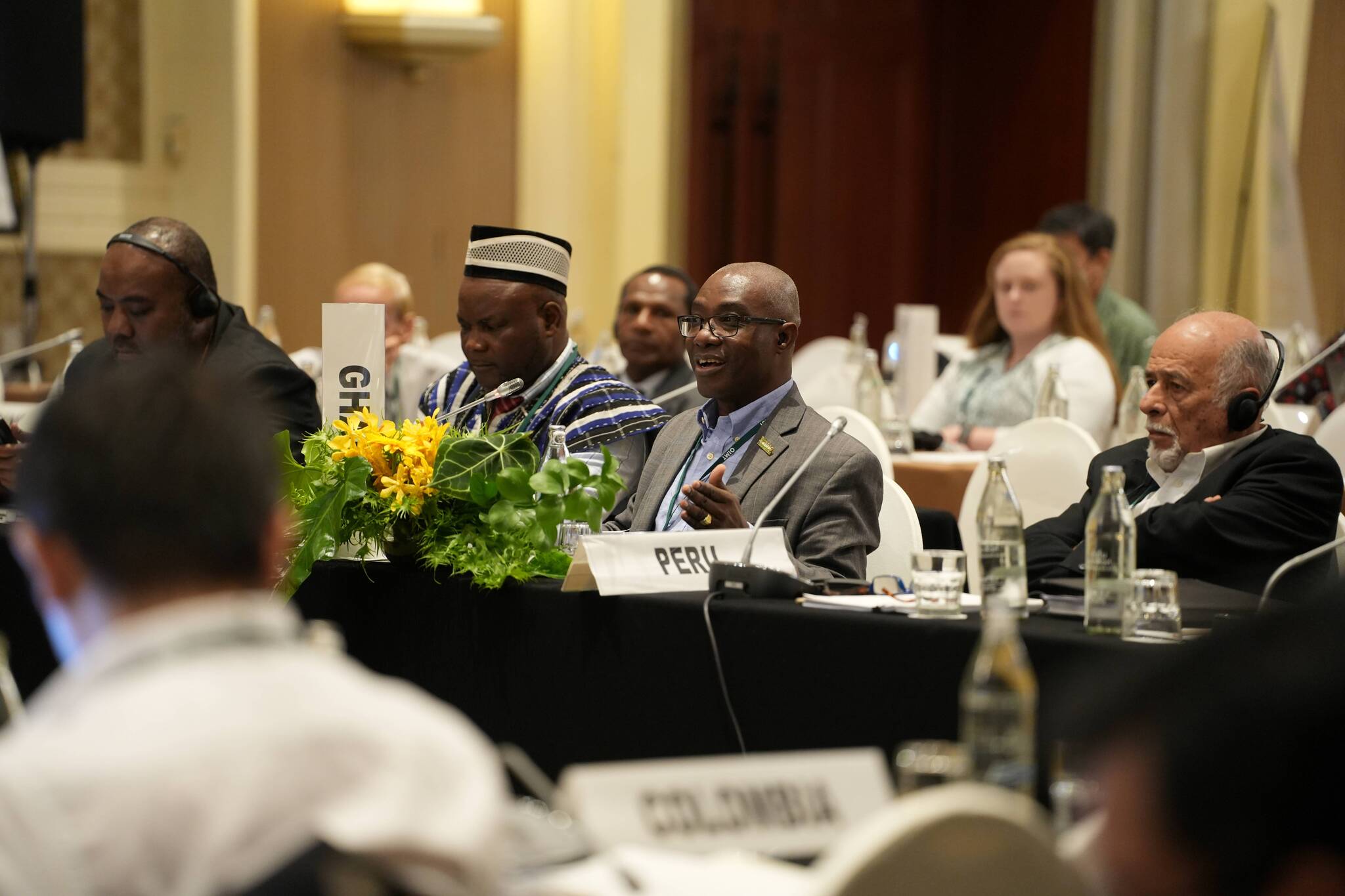EU deforestation regulation in the spotlight during Trade and Markets Day at Council session
Pattaya, Thailand, 14 November 2023: The European Union’s new regulation on deforestation-free and forest-degradation-free supply chains, known as EUDR, was the topic of lively discussion during Trade and Markets Day at the 59th session of the International Tropical Timber Council, with some members and the Trade Advisory Group expressing concern about potential consequences of the regulation.
The Council convenes Trade and Markets Day during each session to explore developments and trends relevant to the tropical timber sector. It comprises diverse presentations by experts from around the world and culminates in the Annual Market Discussion, organized by the Trade Advisory Group (TAG). This year, the Civil Society Advisory Group (CSAG) also organized a segment of the Day, which (among other things) explored the implications of the EUDR for smallholders and community forestry.
Speaking during the CSAG segment, Mr Laurent Lourdais from the European Union Delegation in Thailand provided an overview of the EUDR. He said the expansion of agricultural land is the main driver of deforestation and this, in turn, is strongly linked to the production of agricultural commodities. The EUDR is designed to exclude from European Union markets commodities linked to such deforestation and also to forest degradation. The EUDR entered into force on 29 June this year, and its obligations for operators and traders will apply from December 2024.
Mr Lourdais said the EUDR creates mandatory due-diligence rules for all operators that place relevant products on the European Union market or export them from the European Union. One of the requirements is strict traceability linking the commodity to the plot of land where it is produced. A benchmarking system will assign risk categories to countries or regions according to the risk of deforestation, for which data-gathering would start soon.
Also speaking during the CSAG segment, Dr Chandra Silori, Deputy Executive Director of RECOFTC, outlined some of the challenges that the EUDR presents to smallholders. For example, they will likely be asked to provide more information than before, such as on the geolocation of their land, and there will be more scrutiny on whether they are complying with national laws and regulations.
“We see this regulation as promising for reducing deforestation and forest degradation and promoting biodiversity conservation and meeting the SDGs, but there are many challenges on how these will be applied on the ground, especially for smallholders,” said Dr Silori.
This point was touched on by Mr Stephen Midgley, speaking during the Annual Market Discussion. He said the EUDR and other trade-related regulations cause headaches for small growers, increasing their costs for which they are not compensated.
Mr Franz-Xaver Kraft of GD Holz Service GmbH and Mr Nils Olaf Petersen of GD Holz and the European Timber Trade Federation, both based in Germany, presented on the implications of the EUDR for timber importers in Europe. For example, anyone with information can submit “substantiated concerns” and authorities must investigate.
Mr Kraft said this was a two-sided sword. On the one hand, non-governmental organizations might be able to help in detecting actual cases of non-compliance with the EUDR. There was fear, however, that some NGOs might use the provision to hinder imports and disrupt legitimate trade. Non-compliance could attract major penalties.
Mr Kraft said he believed that, for large tropical companies, compliance with the EUDR should not present major challenges because they are already well-prepared. But it will be a significant challenge for smallholders to comply.
ITTO members that made interventions related to the EUDR during Trade and Markets Day included Brazil, New Zealand, Peru, the United States of America and Viet Nam, in addition to the European Commission. Among the issues raised from the floor included:
- the potential impacts of the EUDR on smallholders, who may lack the technologies and even literacy needed to comply with the regulation;
- the difficulties presented by complex supply chains for many timber products;
- whether the replanting of a forest destroyed by wildfire would constitute deforestation (or forest degradation) under the regulation;
- the short timeframe for implementation of the EUDR; and
- whether the EUDR made the European Union’s Forest Law Enforcement, Governance and Trade (FLEGT) voluntary partnership agreement (VPA) process redundant.
At the conclusion of the Annual Market Discussion, the TAG made a statement on the EUDR.
“The principle behind the EUDR is one that the tropical timber trade supports,” according to the statement, which was delivered by Mr Barney Chan. “Deforestation is anathema to an industry built on sustainable use of tropical forests. TAG welcomes the acknowledgement in the preamble to EUDR that the major driver of deforestation is not demand for wood products, but that, in the words of EU, “agricultural expansion drives 90% of global deforestation”. However, TAG is deeply concerned that the law fails to acknowledge, either explicitly in the text or by implication in the measures it imposes, that the sustainable production and consumption of timber promotes forest conservation and mitigates climate change.”
The two-page statement pointed out aspects of EUDR that TAG believes “have the potential to create unnecessary barriers to the sustainable development of tropical forest resources and trade in tropical timber products”. It urged the European Union to take into account the concerns raised in the statement “and of the significant positive contribution of the legal trade in tropical forest products to mitigate the risks of deforestation”. The statement concluded by saying that TAG members are ready to work with the European Union to ensure “smooth implementation of a simple and practical system to address the aims of the EUDR”.
In its statement delivered by Mr Hin Keong Chen from TRAFFIC, CSAG highlighted the “unique challenges and issues” facing small and medium-sized forest enterprises and community forestry, including requirements for strict traceability and proper documentation. These are compounded by low levels of skills in and awareness of sustainable harvesting and additional costs, among many other challenges, “all of which are affected by low levels of local control and transparency, which raises risks of corruption and illegality, while marginalizing communities from the process and the benefit,” according to the statement. The rights of Indigenous Peoples and local communities are unclear in many areas, “obstructing fair and equitable discussions and negotiations”. Moreover, “the involvement of women in formal operations is rarely at the decision-making level, and their access to financing is even further removed from their actual needs”. Mr Chen concluded the CSAG statement by urging Council members to talk closely with the representatives of Indigenous Peoples, local communities and women’s groups present at the session.
Other speakers during Trade and Markets Day addressed challenges facing Thailand’s timber industry, the role of forests and forest products in a bioeconomy transition, community engagement and smallholders as pillars for Southeast Asian forest investment, and the potential of mass timber in the building industry.
Delegates received reports during the Day on market access, forest and timber certification and the Asia-Pacific Economic Cooperation Experts Group on Illegal Logging and Associated Trade. Dr Sarah Storck and Mr Rupert Oliver delivered the final report of the Independent Market Monitor, a long-running project designed (among other things) to monitor the impacts of the FLEGT VPA with Indonesia.
Statements and presentations are available here.
The International Tropical Timber Council meets at least once a year to discuss a wide-ranging agenda aimed at promoting sustainable tropical forest management and the trade of sustainably produced tropical timber.
Daily coverage of the session by IISD reporting services is available at https://enb.iisd.org/ittc59-international-tropical-timber-council

